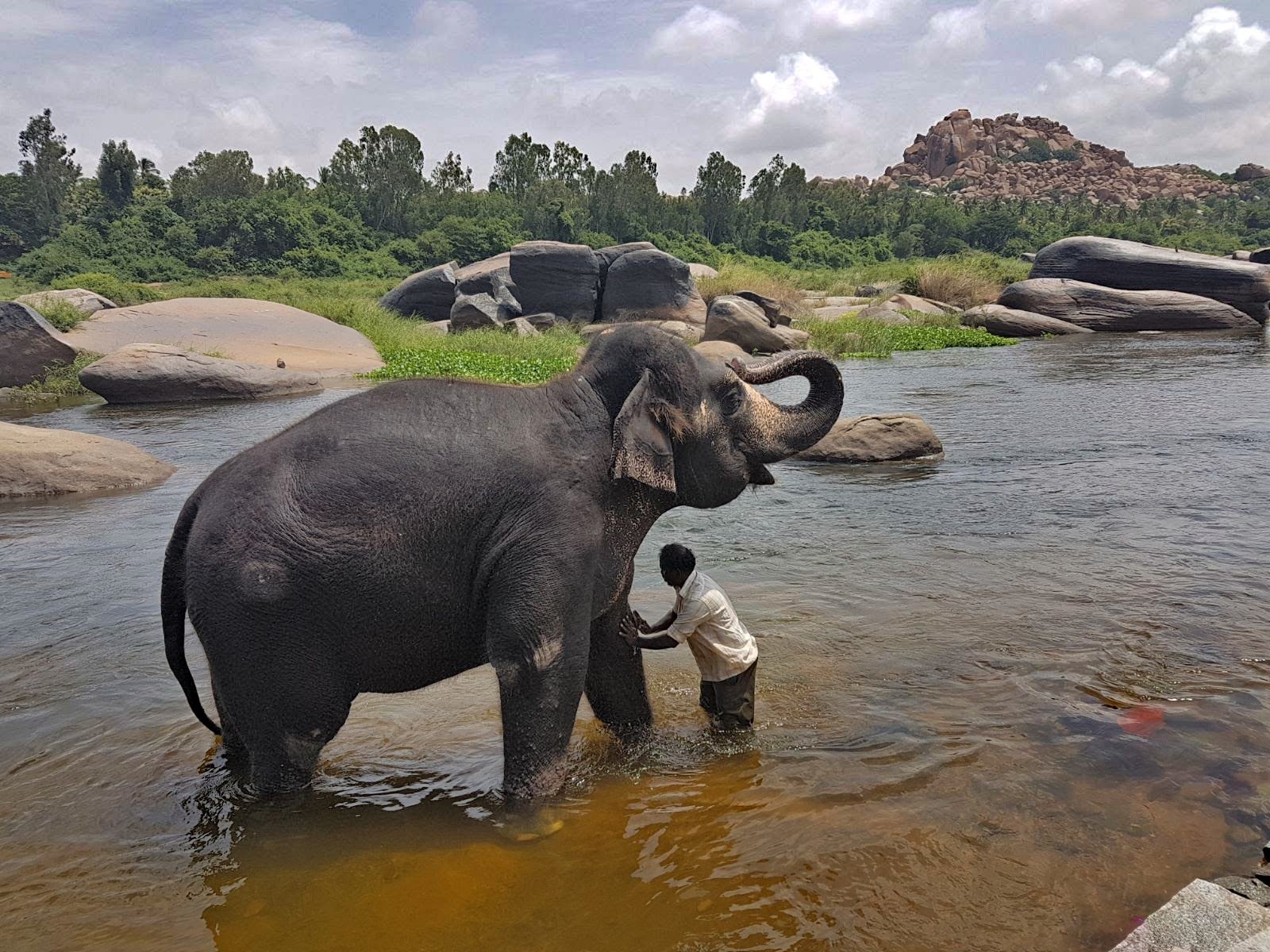past study visits
Changing places - The Geography of South India
We have been regularly running these Geography study visits since 2007. These visits gather subject-specific information and location-based curriculum materials. Each visit begins in rural north Bengaluru exploring change through walks and cycle rides, visiting farms, villages and conducting enquiry based fieldwork.
We introduce the way that the mega city of Bengaluru is developing, growing and changing, the impacts and challenges on water security in the region and the cultural impacts of development. We examine issues relating to economic change, regeneration and rebranding as the ‘IT hub of Asia’ and the role of TNC’s, with examples of outsourcing and migration affecting the resulting socioeconomic mix. Activities include photograph projects, transects and fieldwork activities.
We then visit two contrasting regions: The tropical forest biome of the western ghats, with treks and walks into the forest and looking at the role of forest commodities in the economic development; the Cauvery river basin and the economies it supports, rice, sugar cane and silk. The journeys explore the diverse cultural context of south India through visits to shrines, temples and religious spaces.
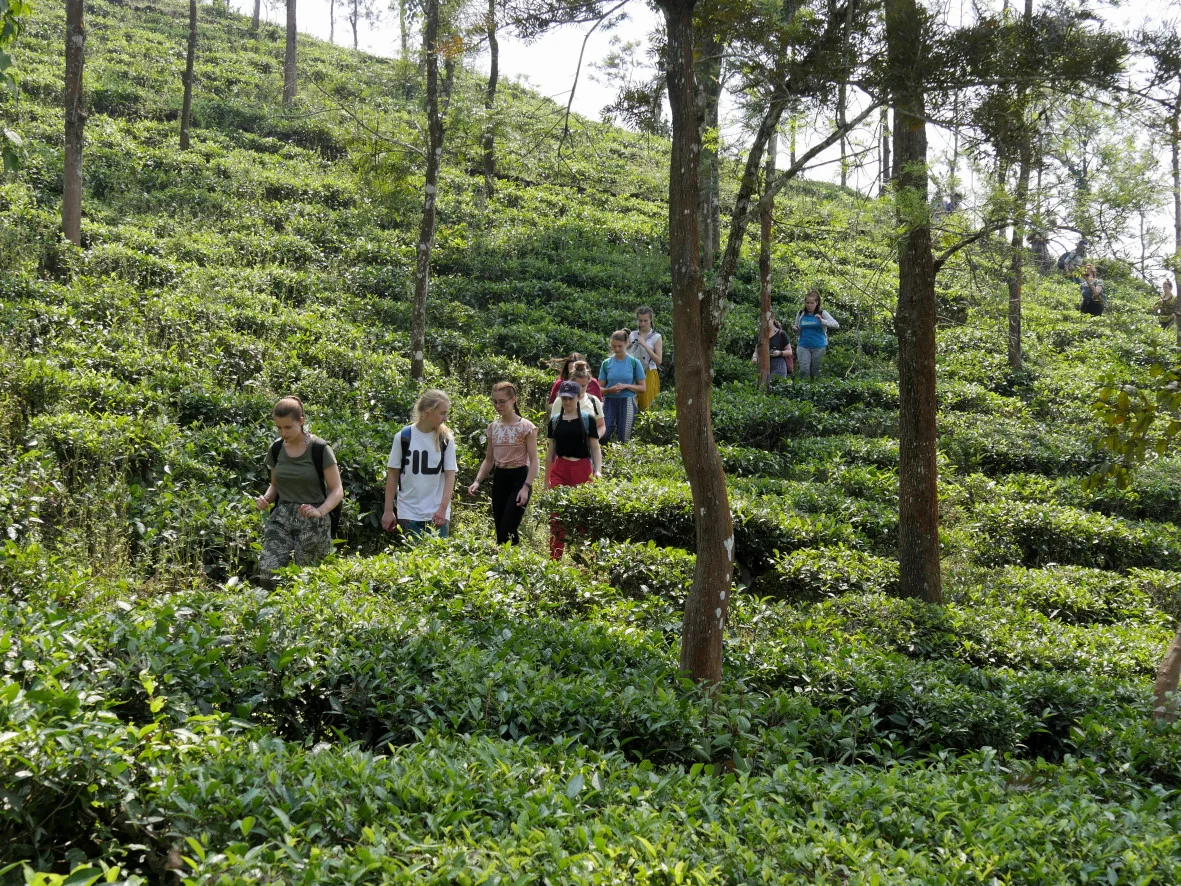
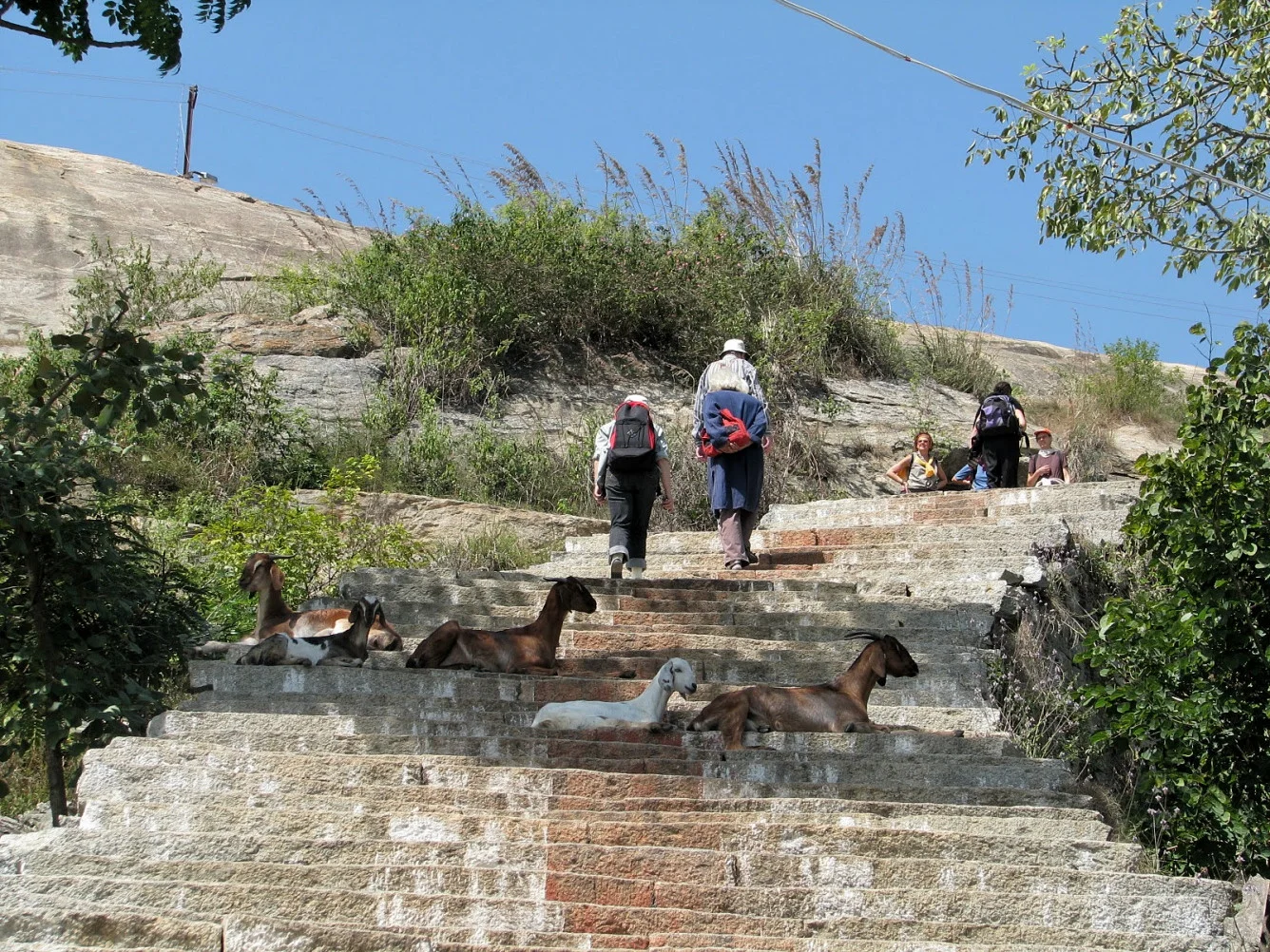

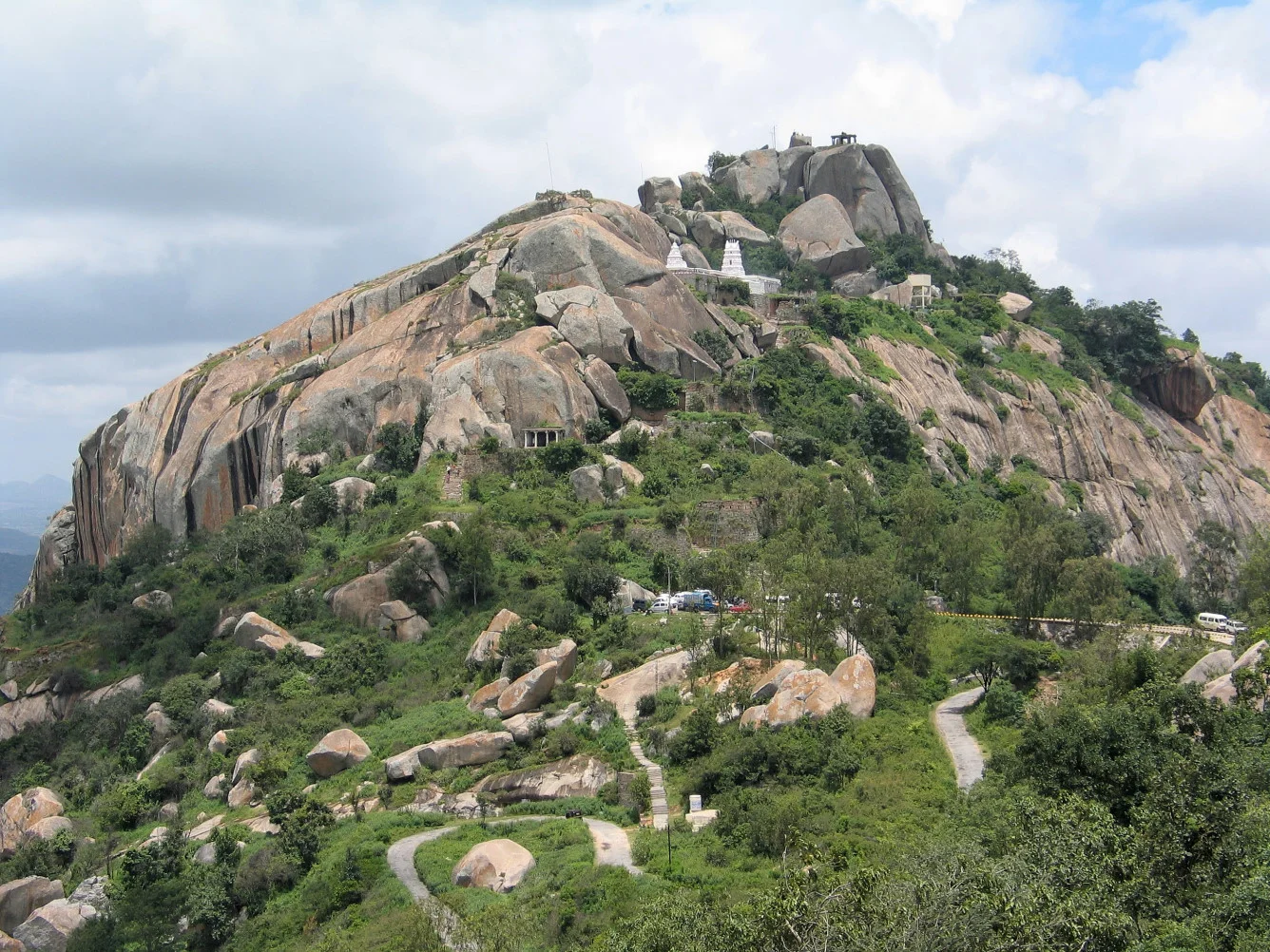
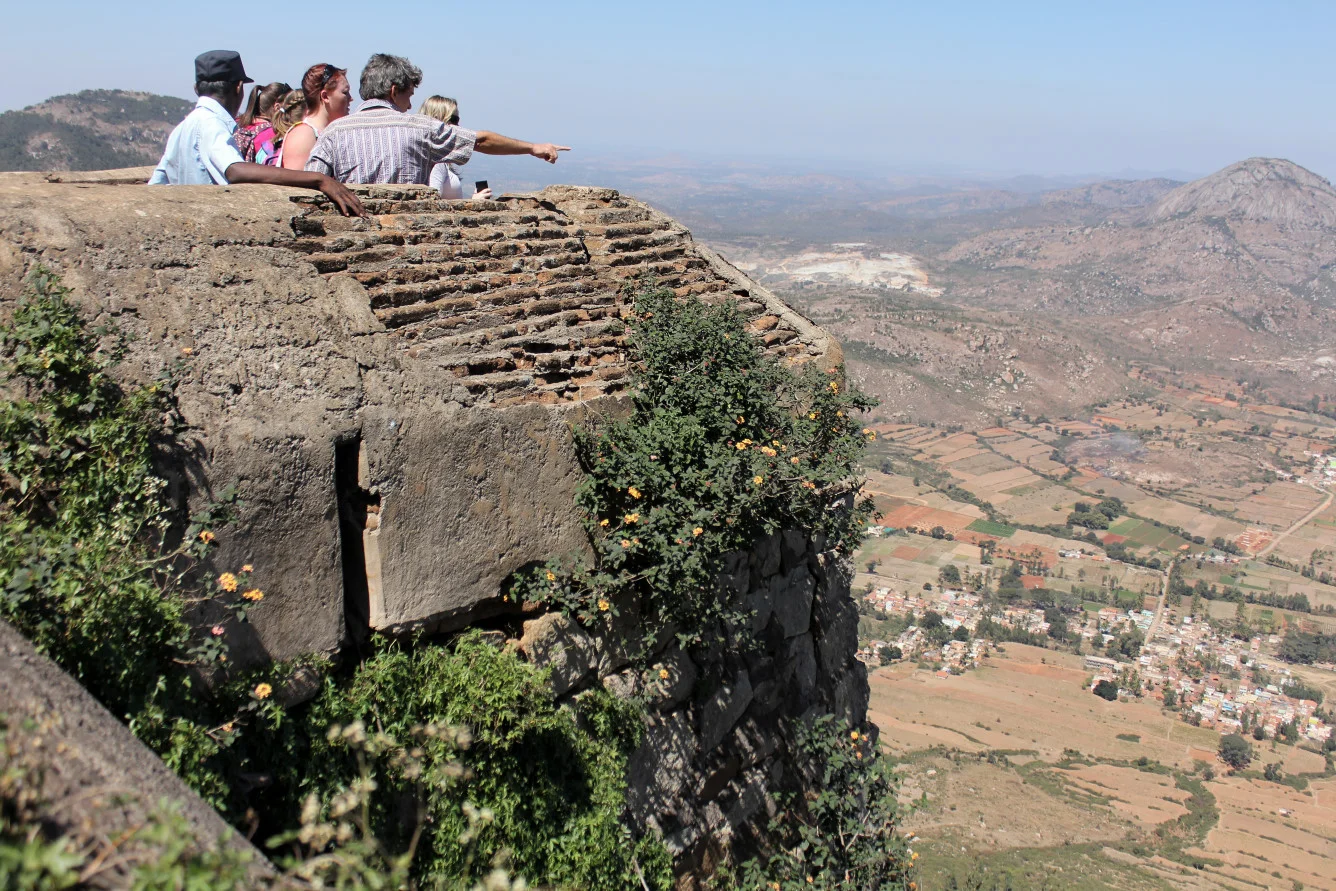
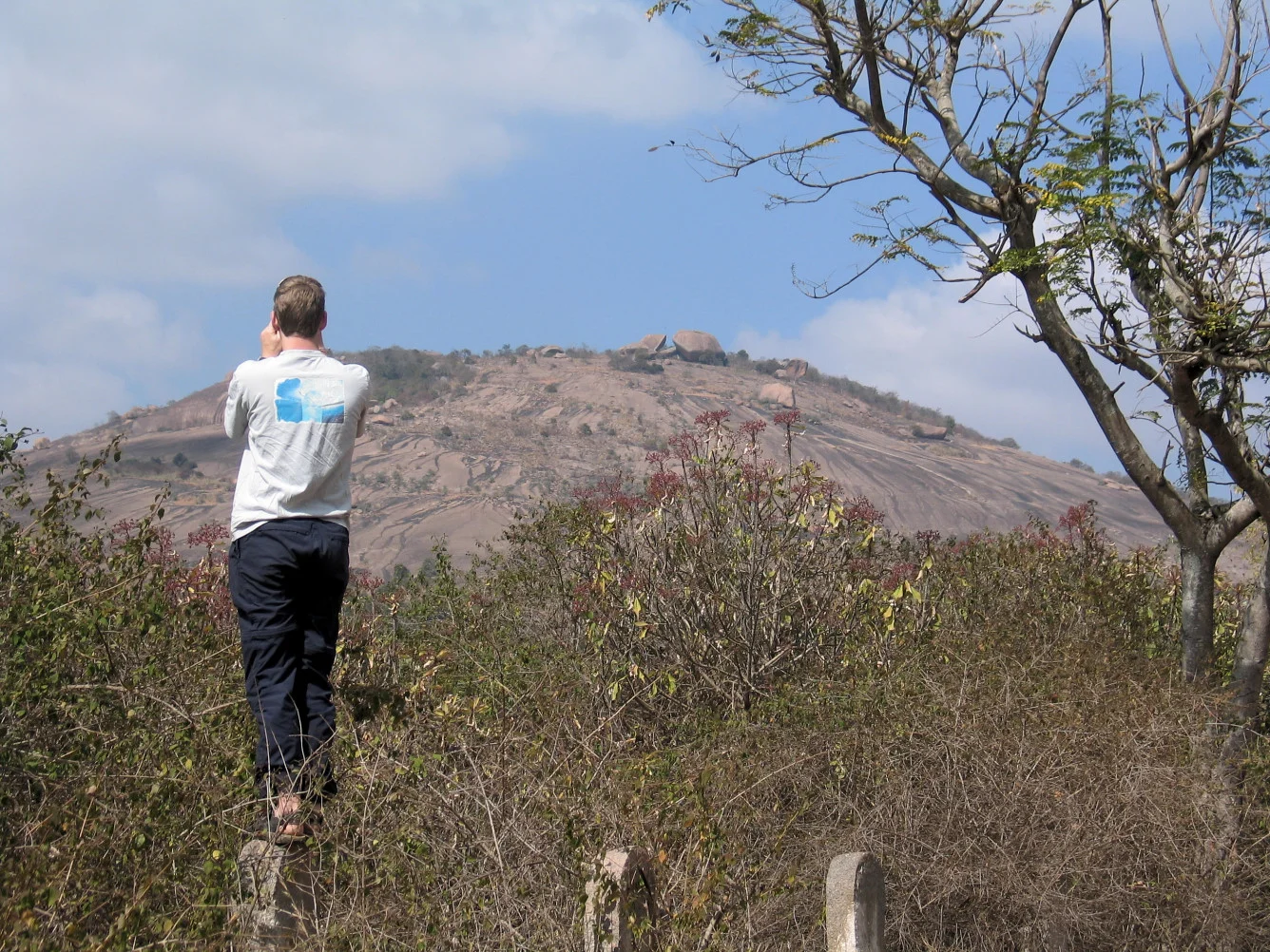
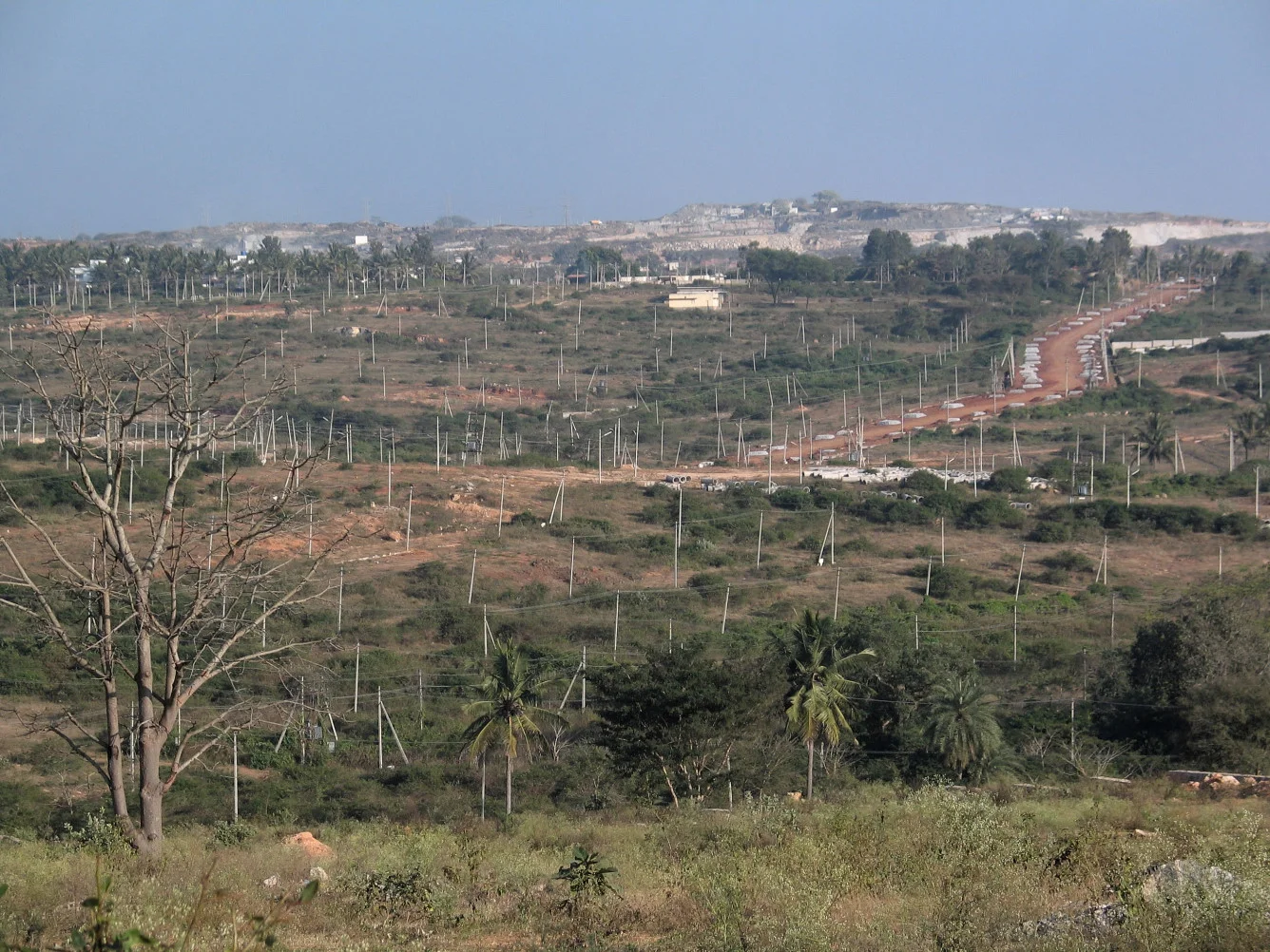
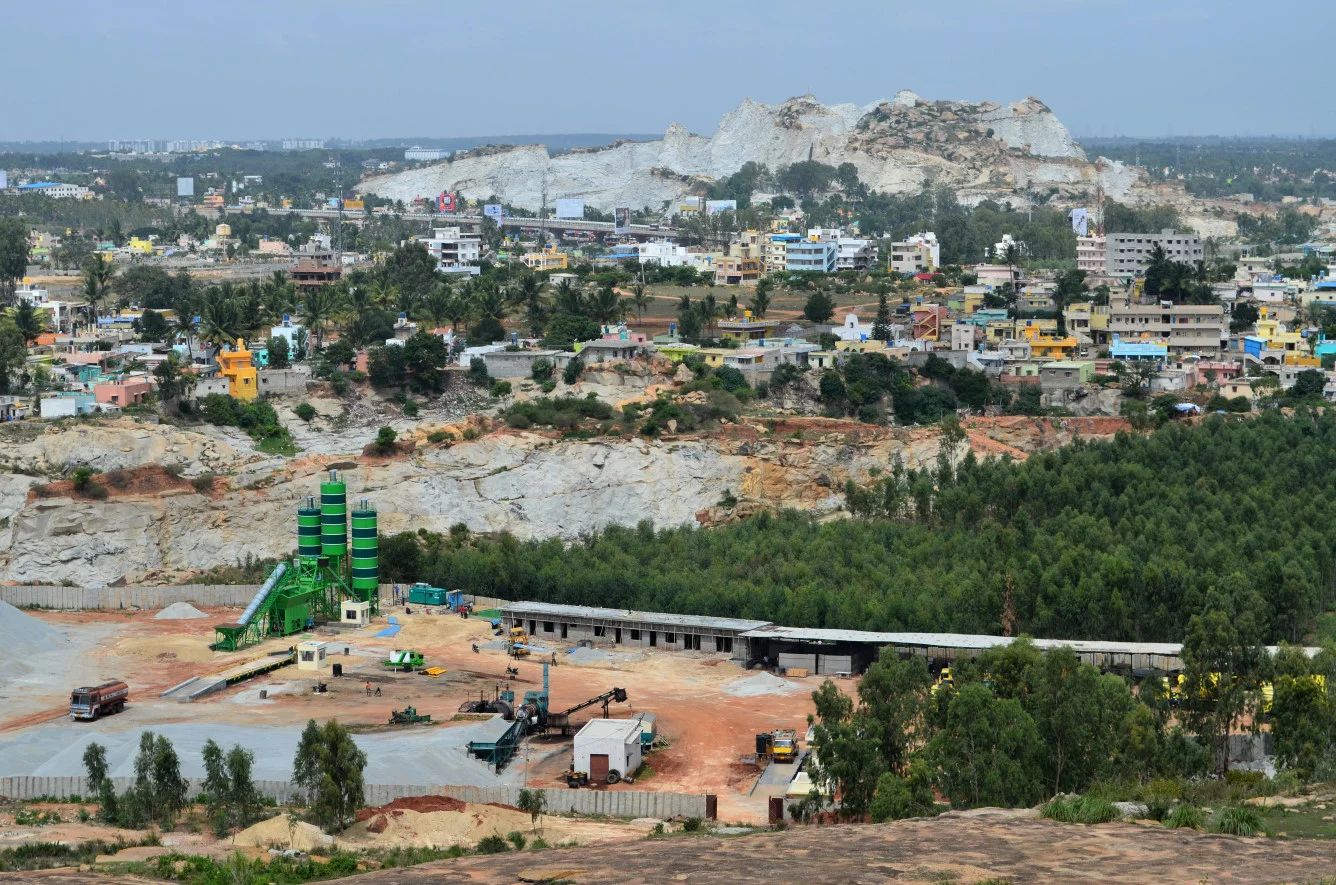
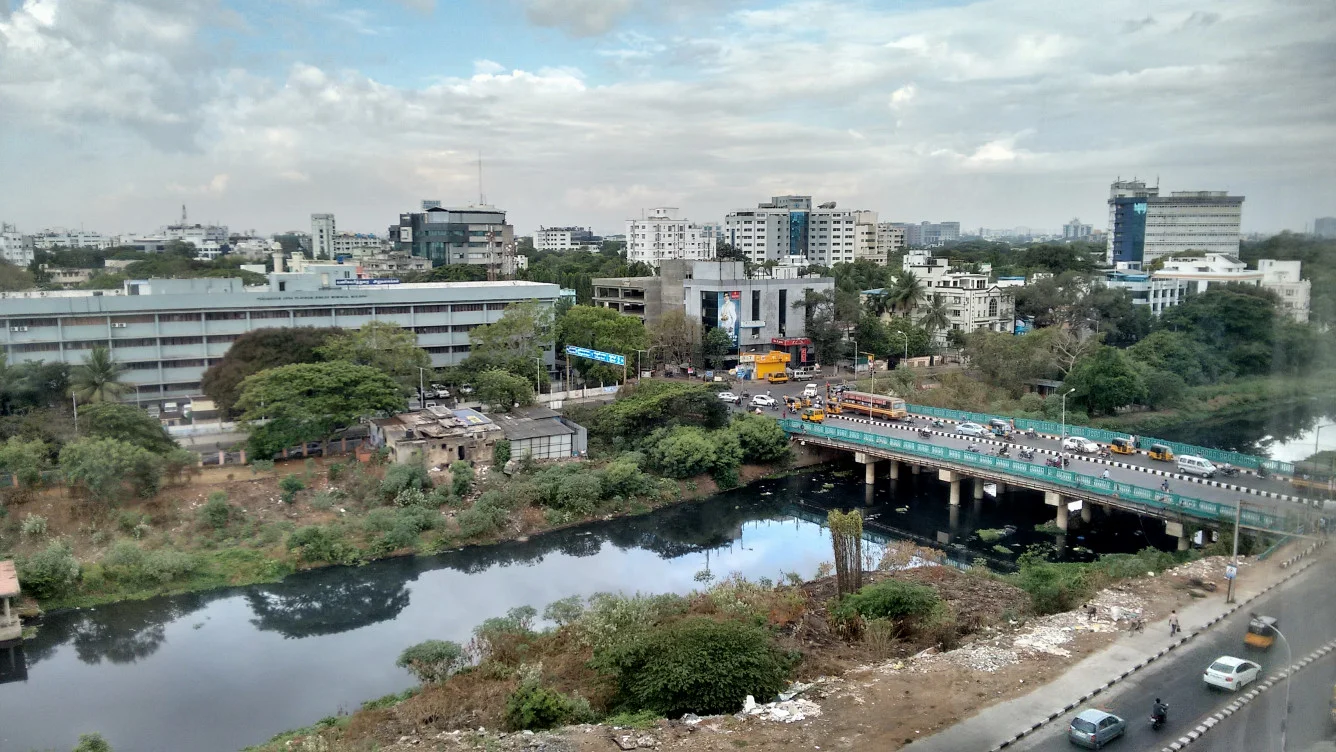
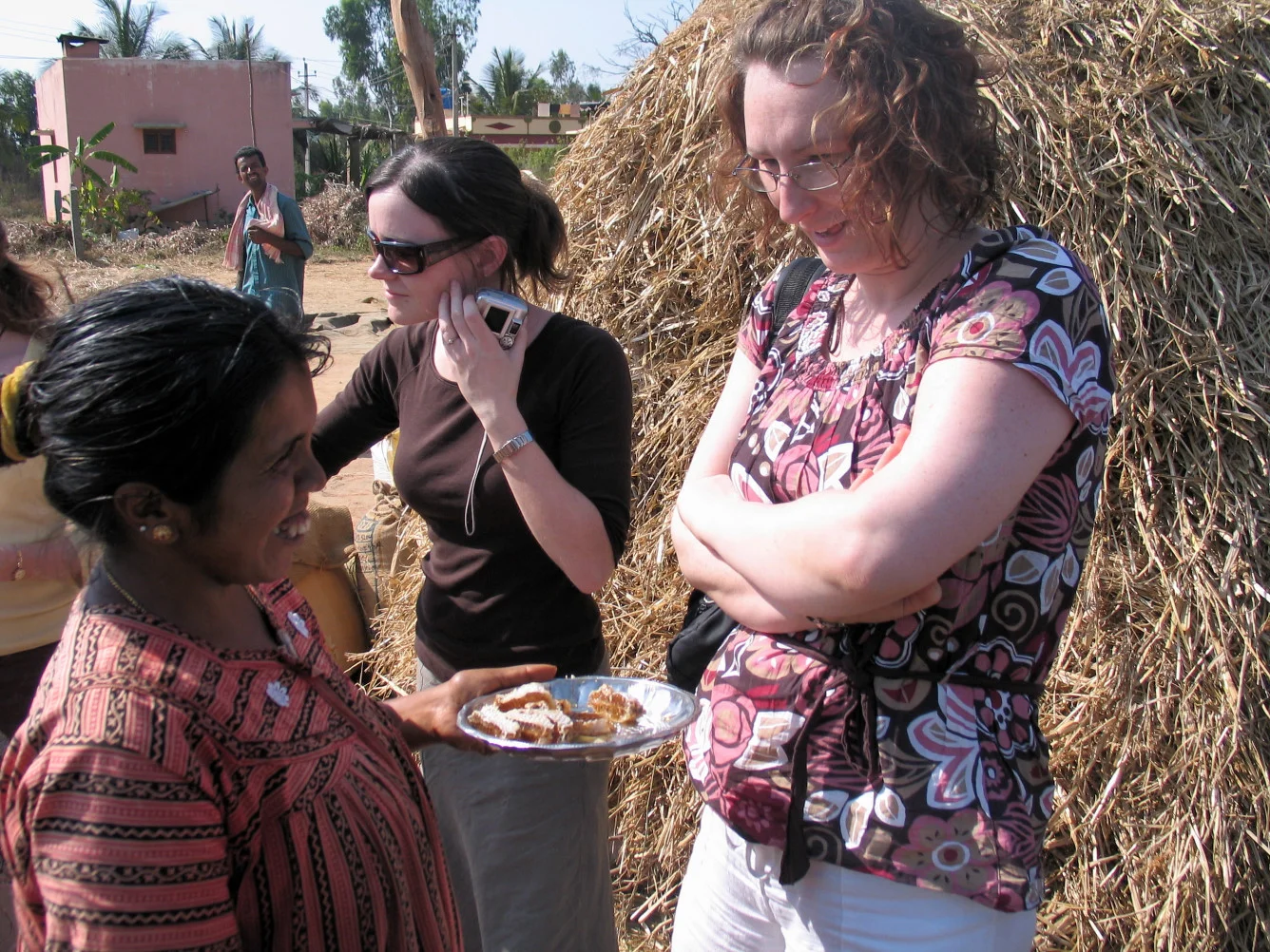
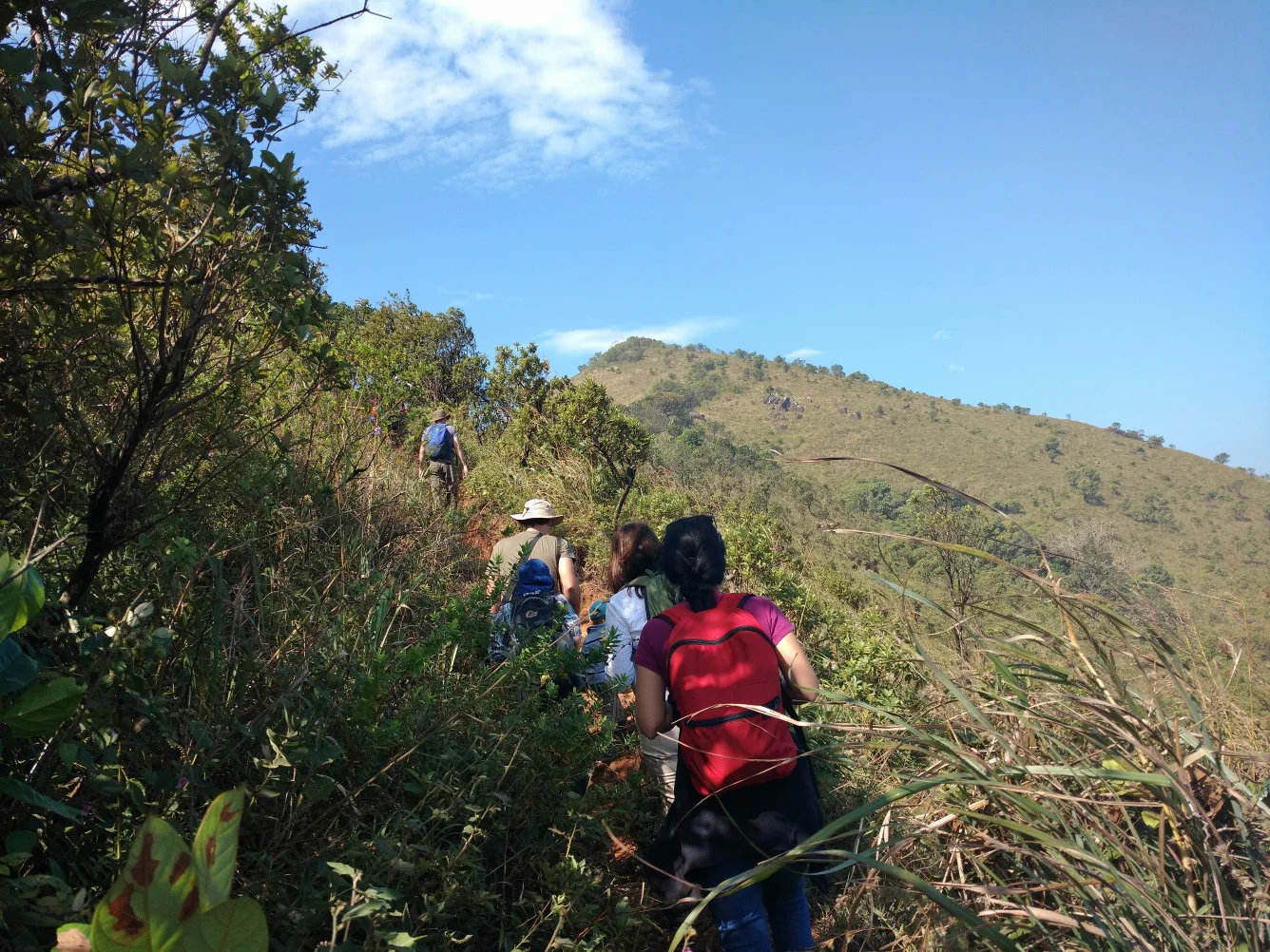
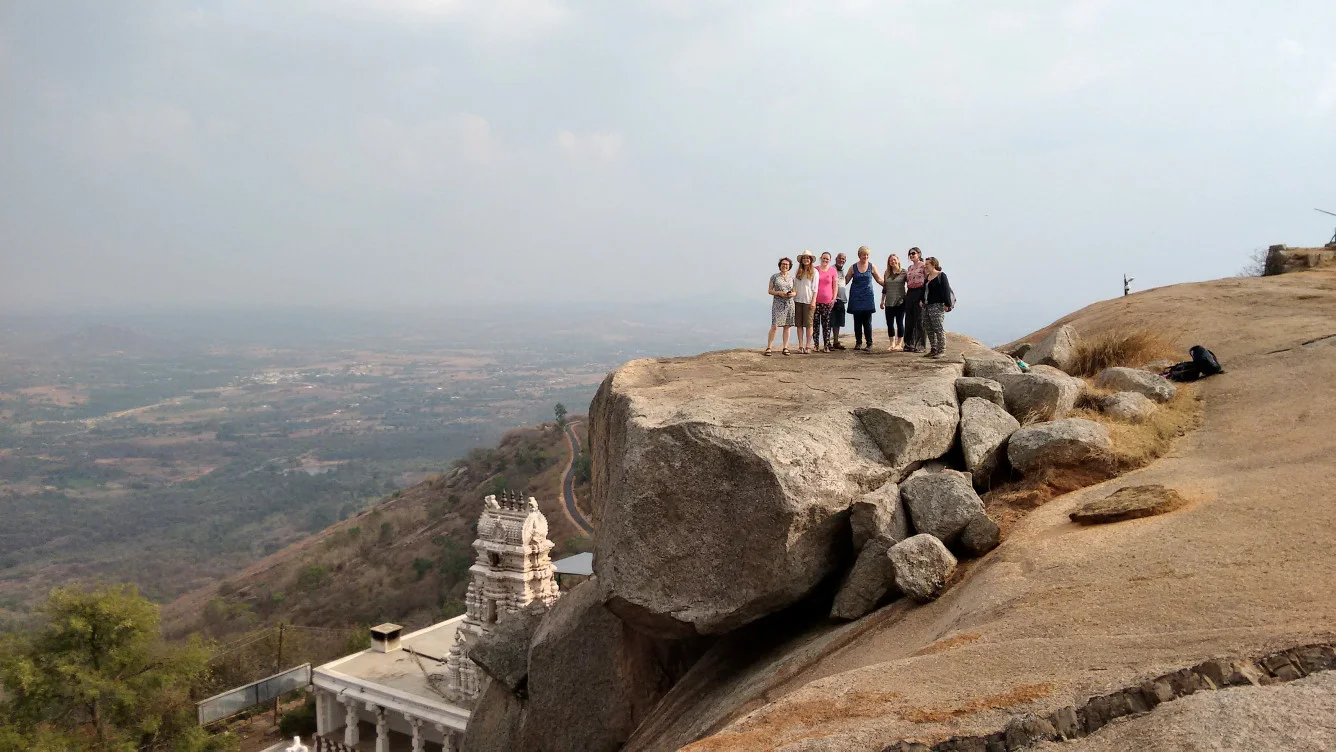
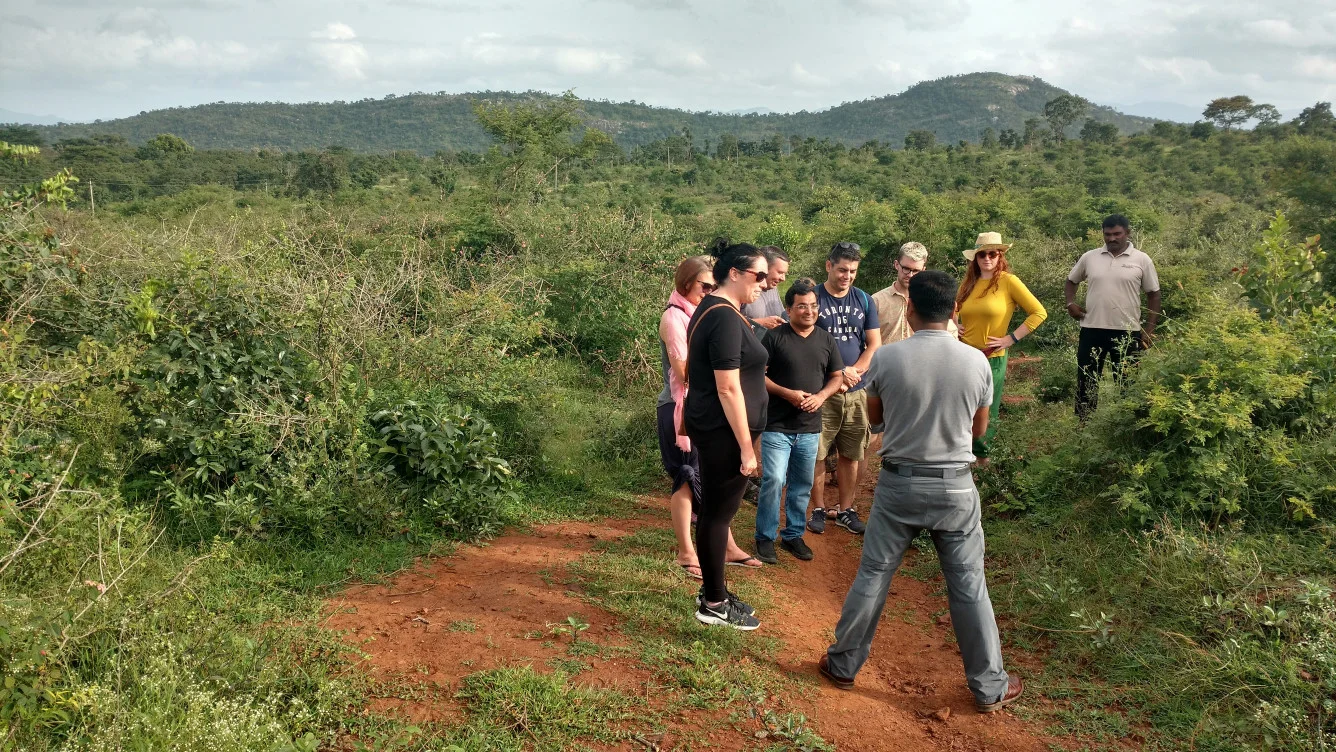
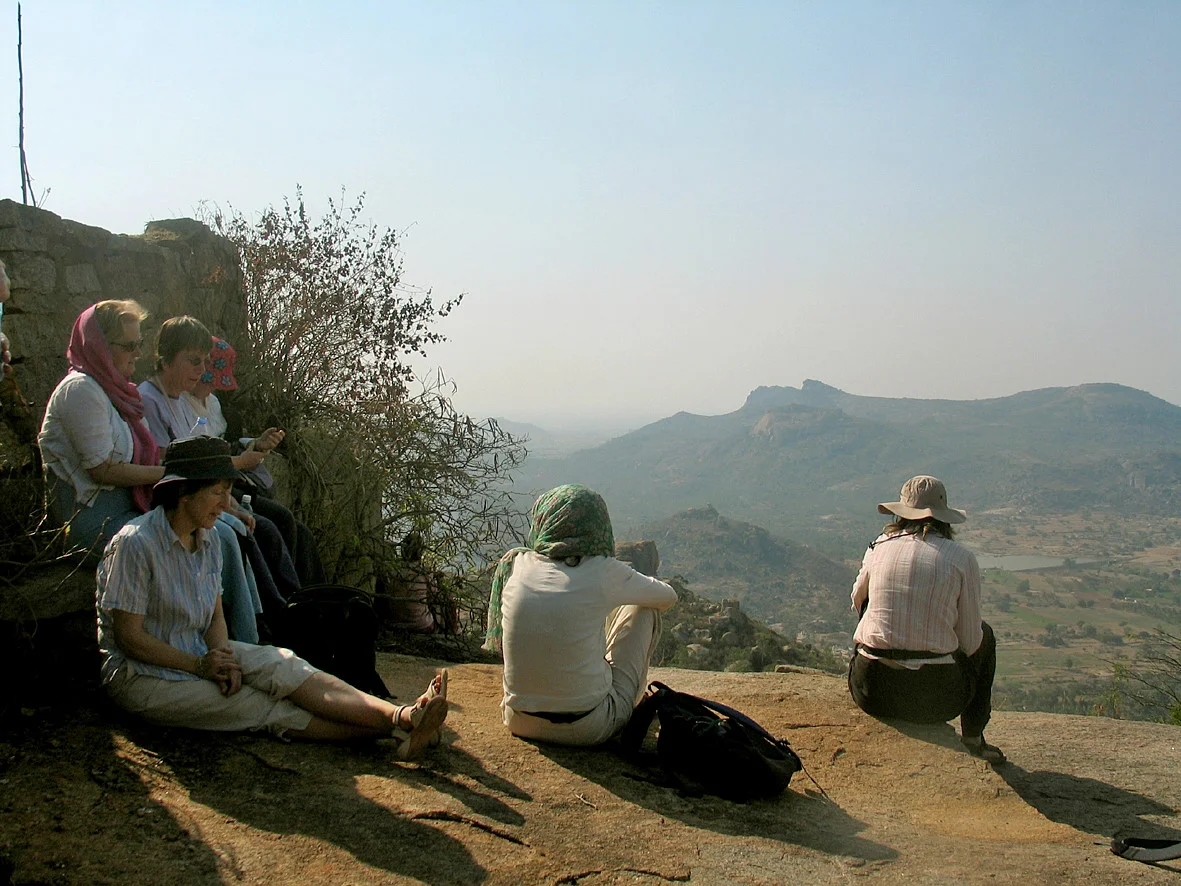
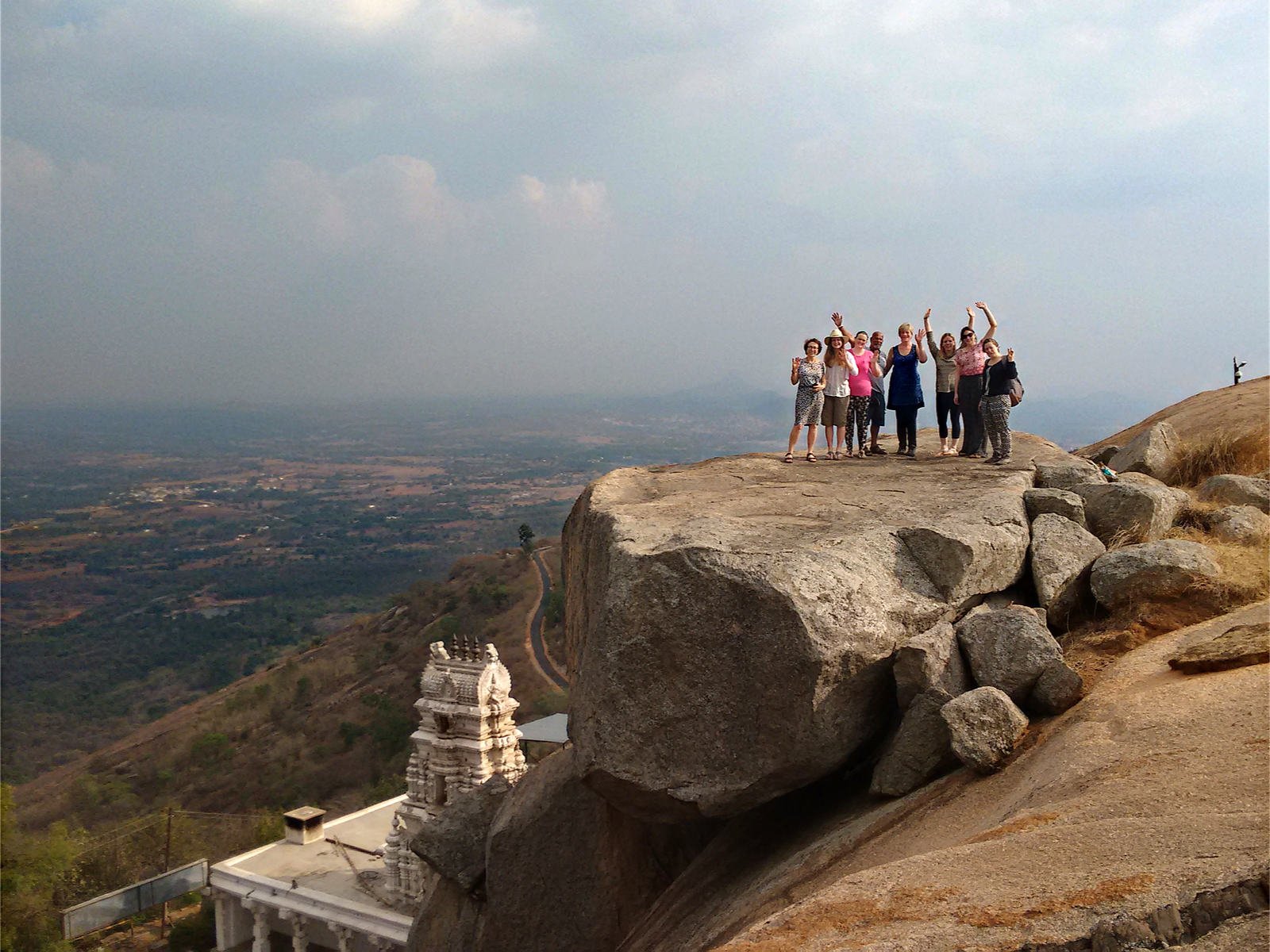



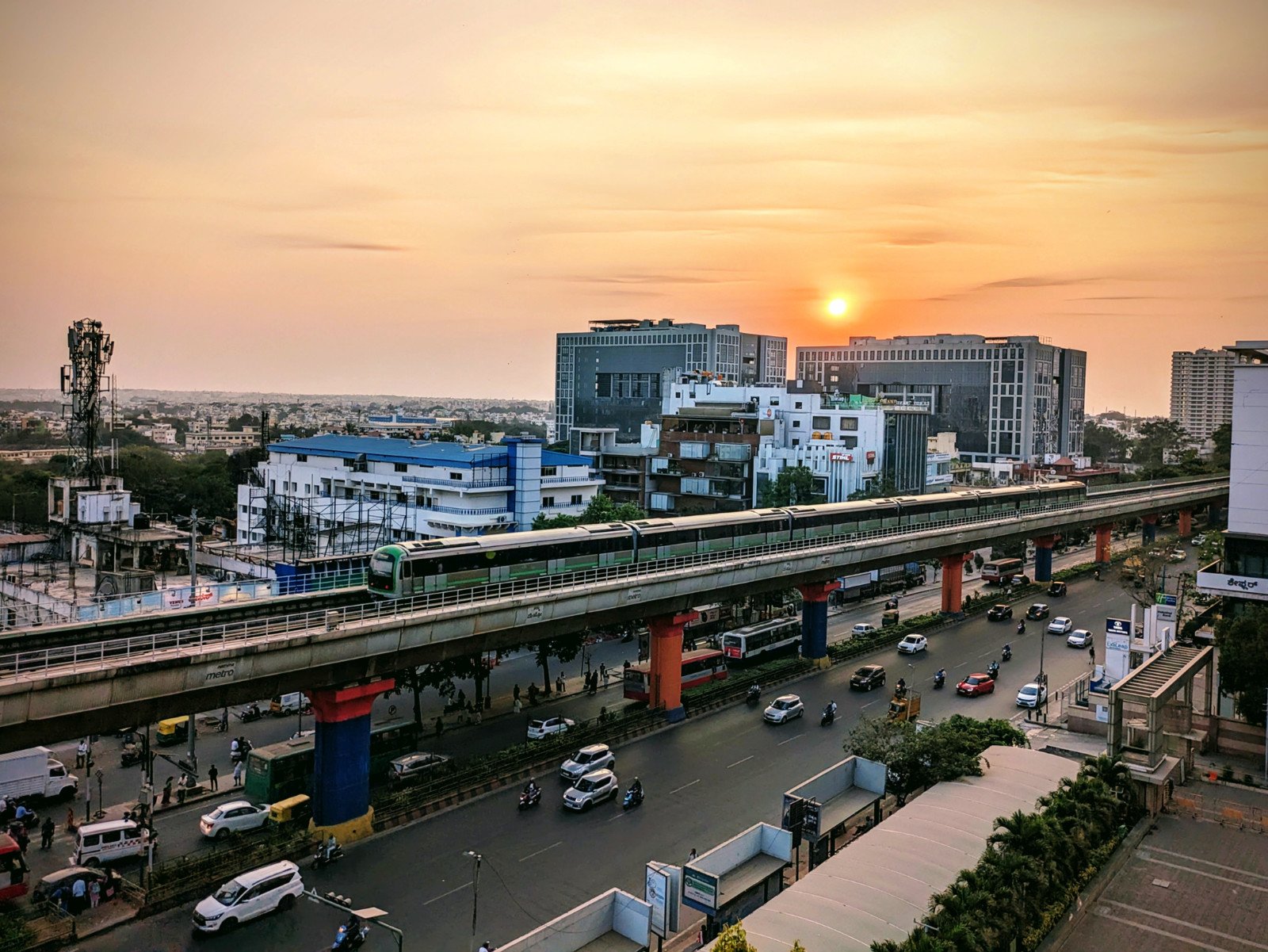


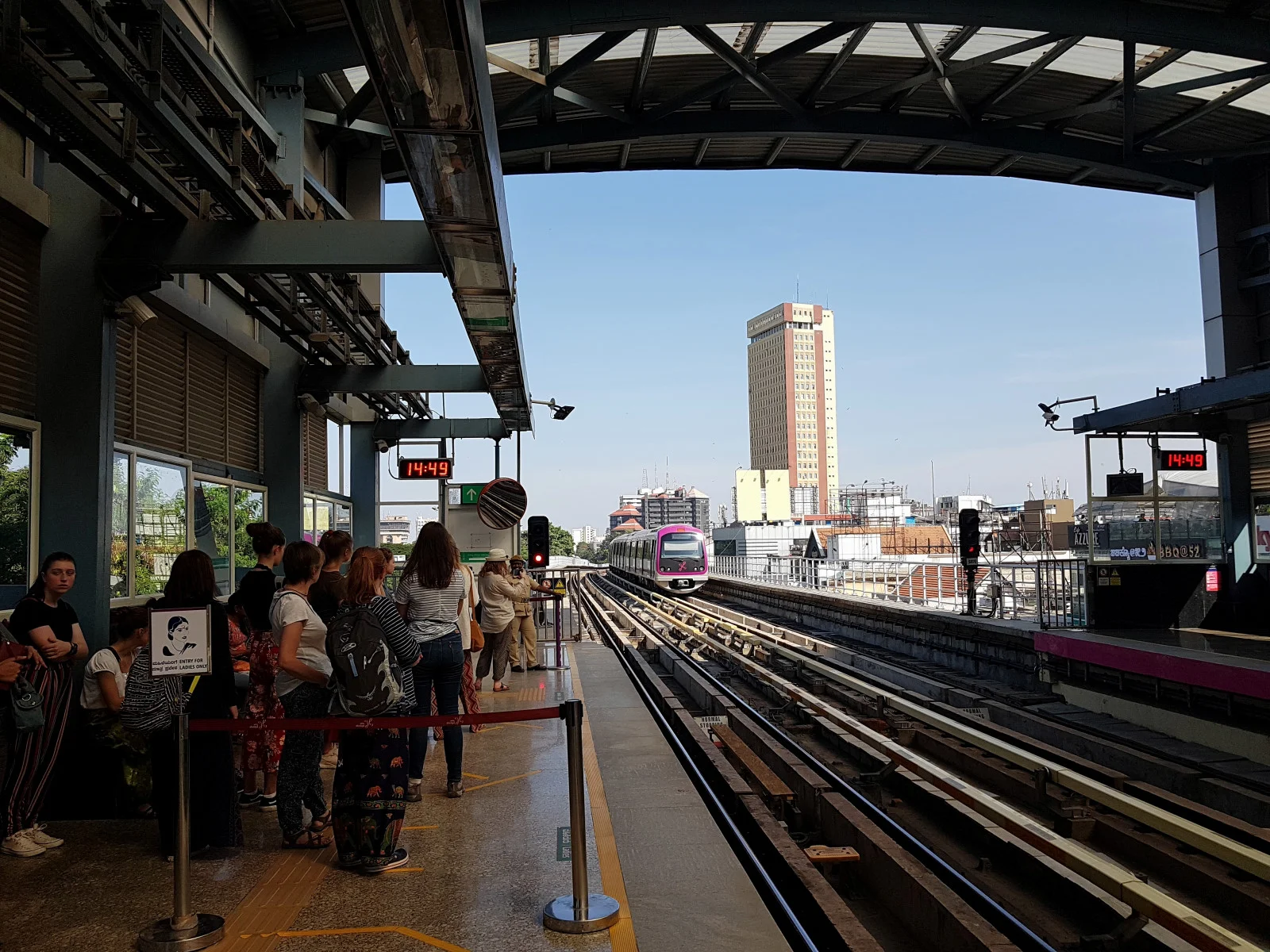

Enquiry in South India - Primary teacher study visits
Our primary teacher study visits began in 2004 and we have run at least one of these programmes each year since then. The visits focus on enquiry as a pedagogical tool, and all of the excursions have involved different enquiry based activities. The aim is to equip the participants with skills and resources teach about India on their return to school.
We map our local context in different ways; clue finding, emotion mapping, sensory mapping. They have engaged in interviews, gathering derives, conducting transects, artefact gathering, sound and film clip gathering, and engage in many different forms of photograph projects.
Each project involves collaborations with local school teachers through a workshop-based mini conference focusing on enquiry as a tool and sharinmg ideas and methods from their different educational contexts within subjects.
Collaborative workshops have involved geography activities, art activities and science based enquiry, and many teachers have formed partnerships and links with local schools which have continued for many years, with teachers returning to visit their partner schools on later visits.
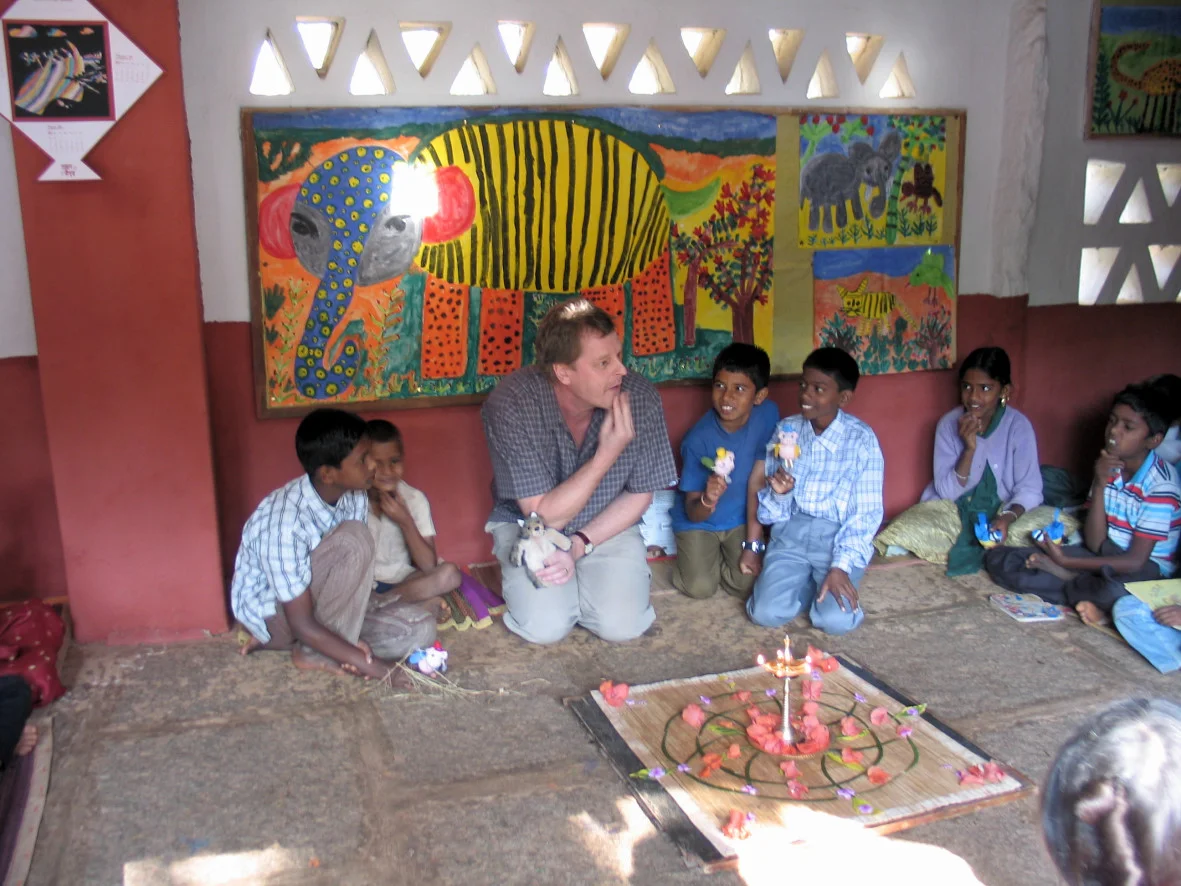
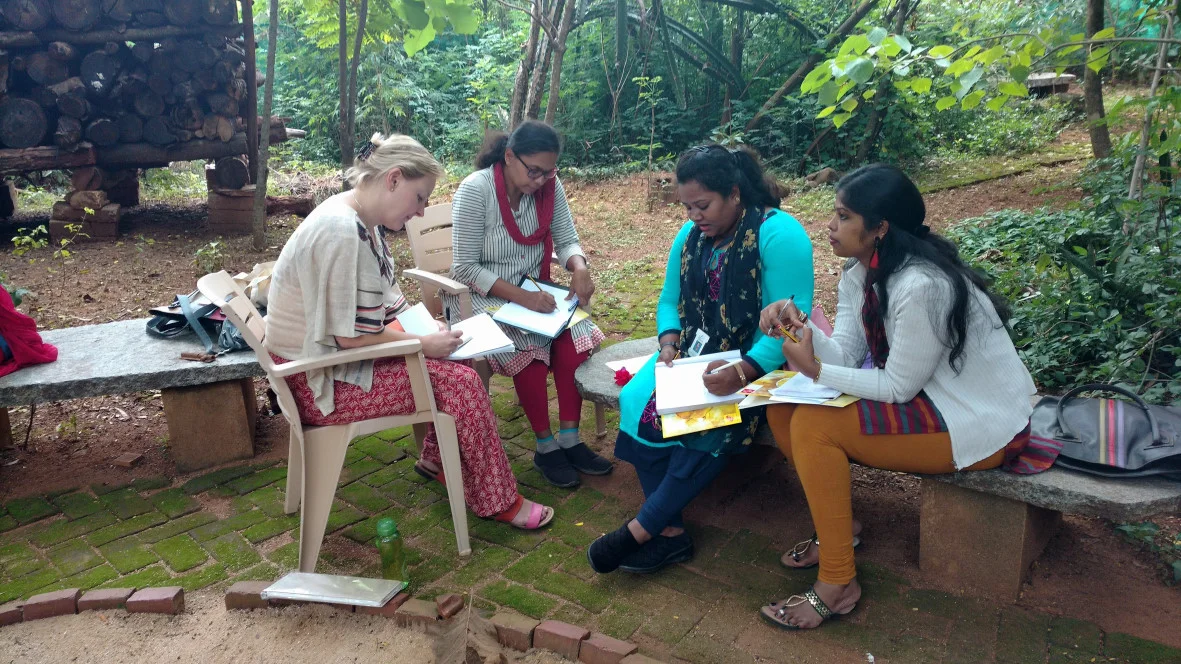
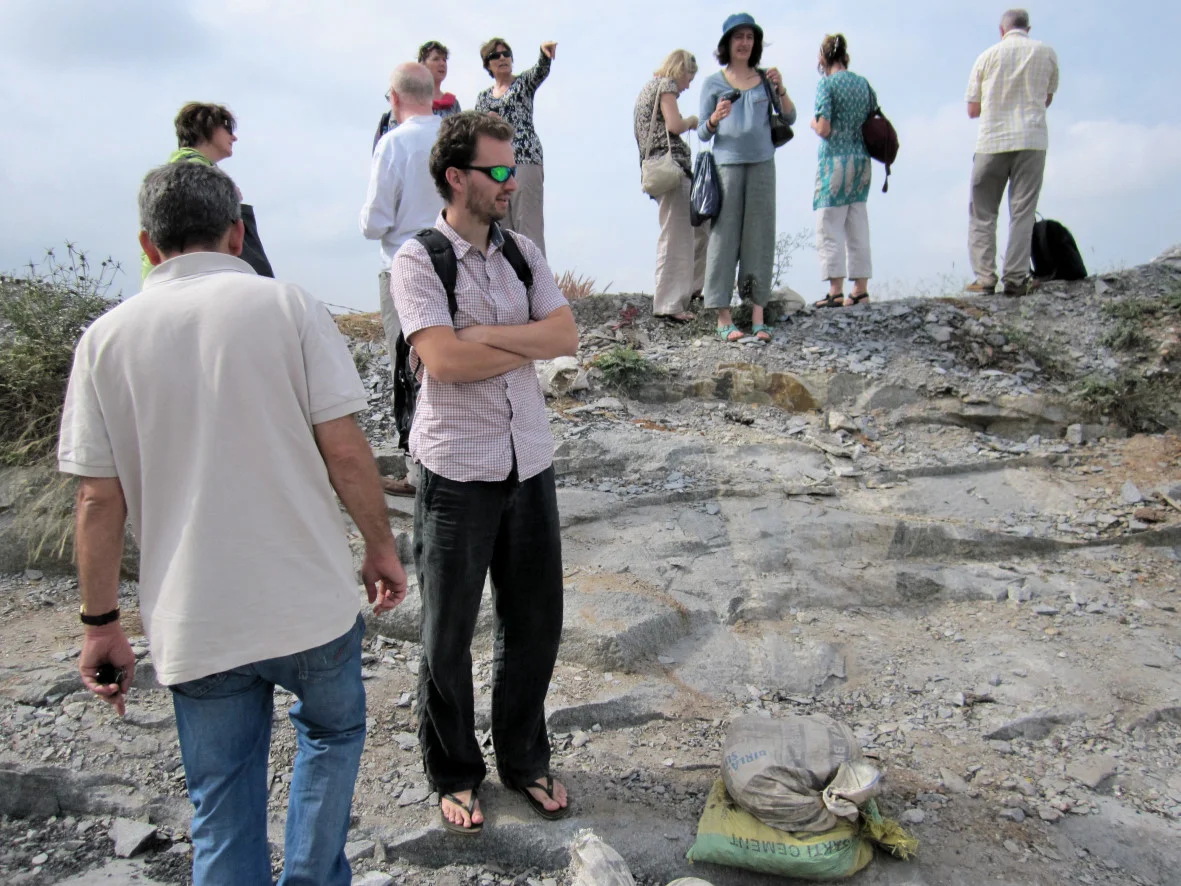
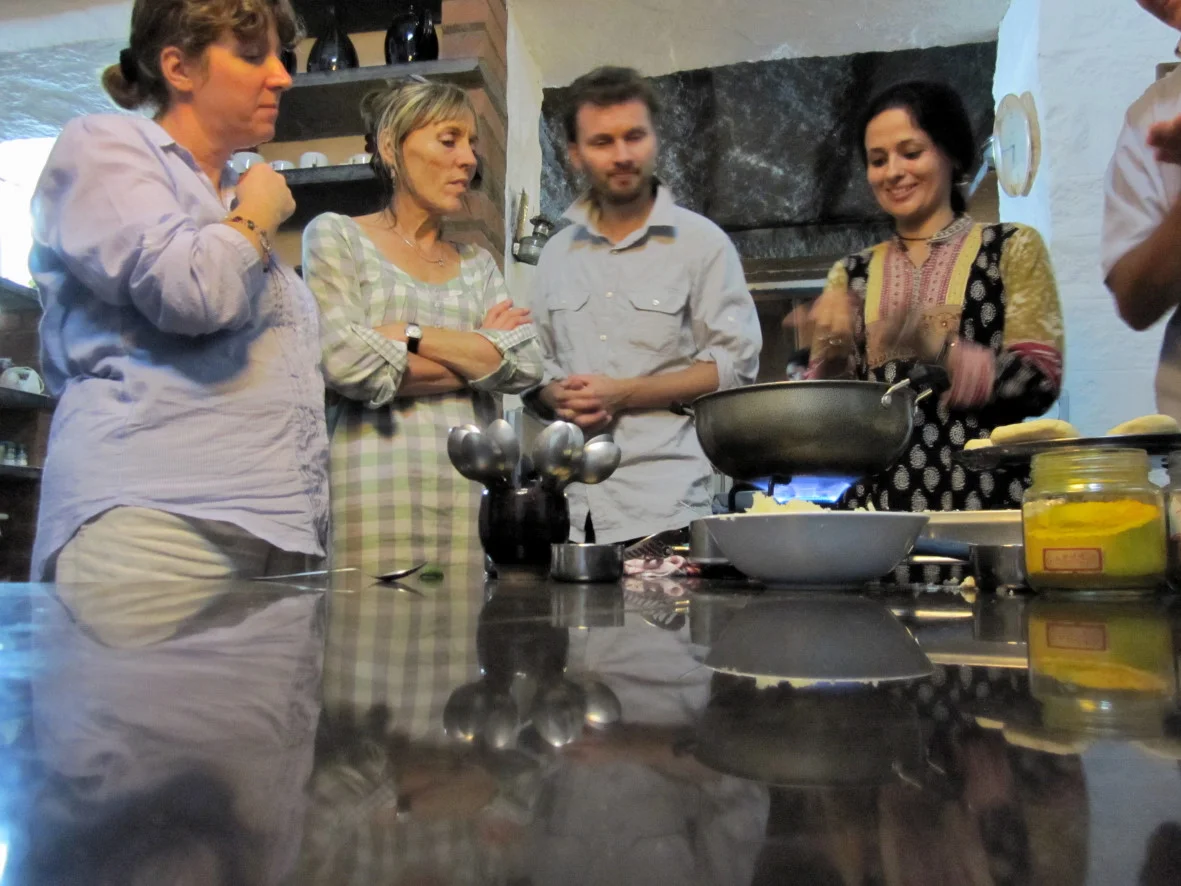
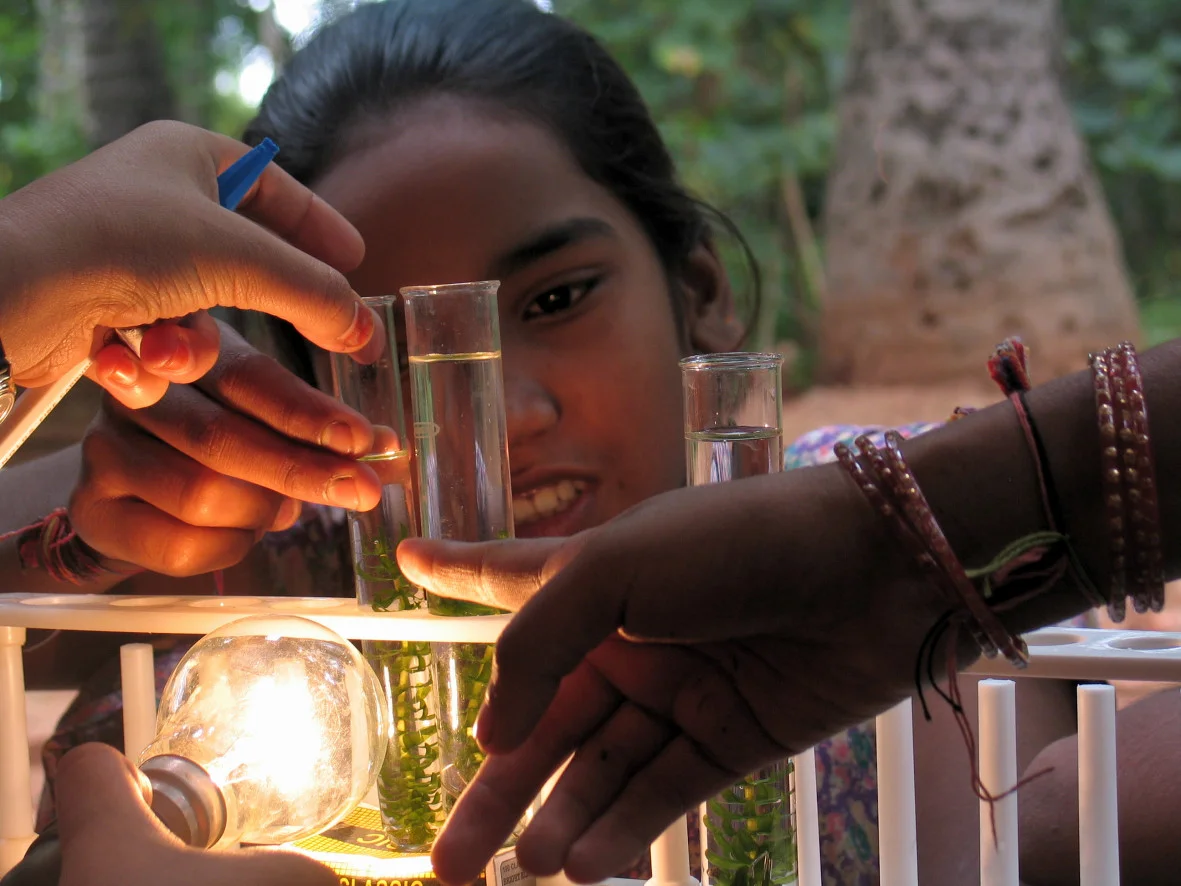
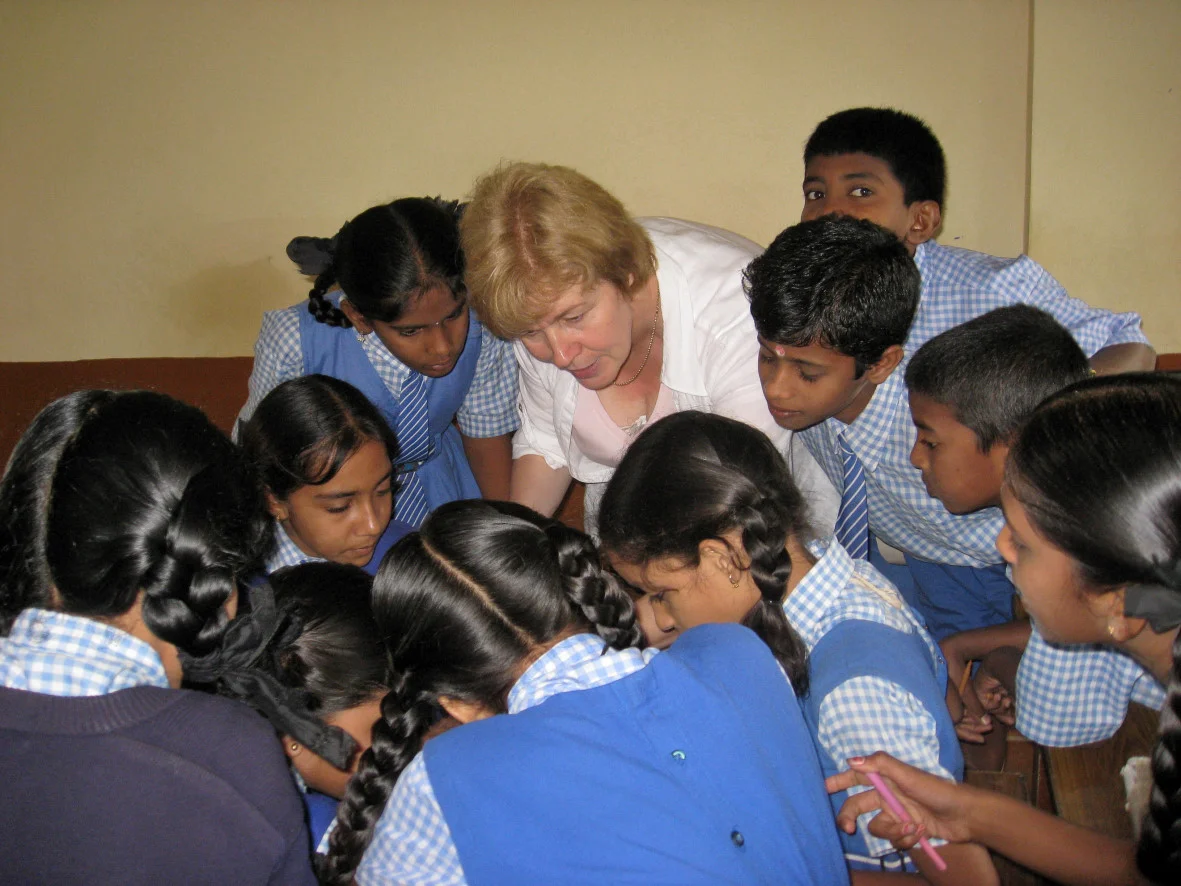
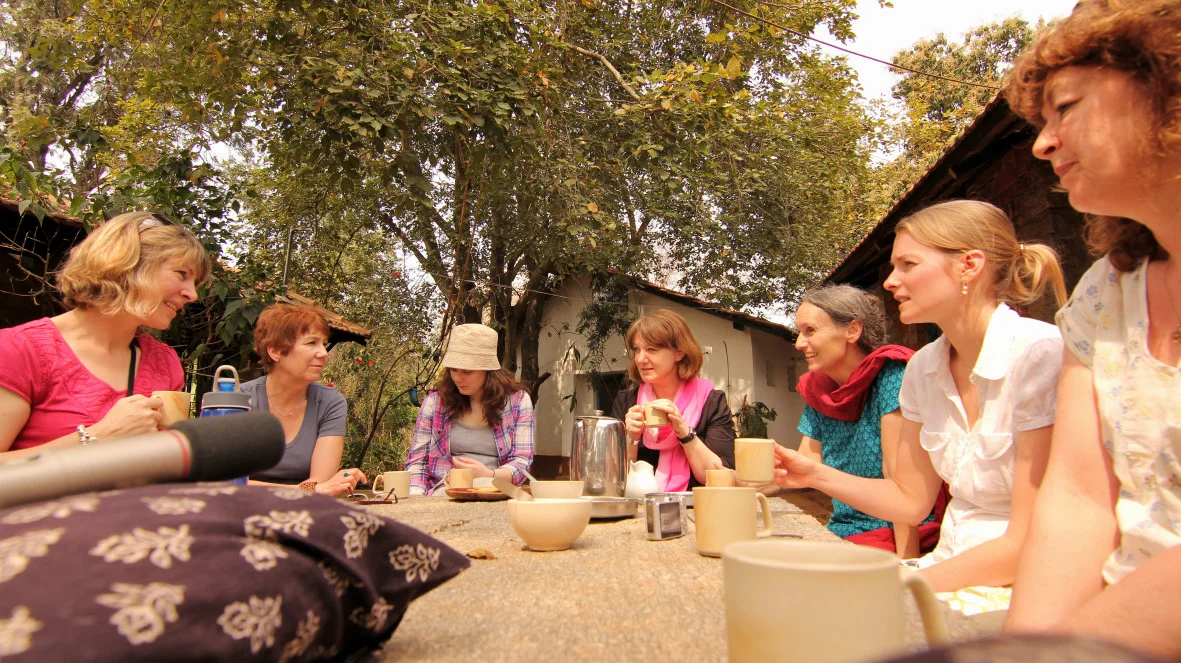
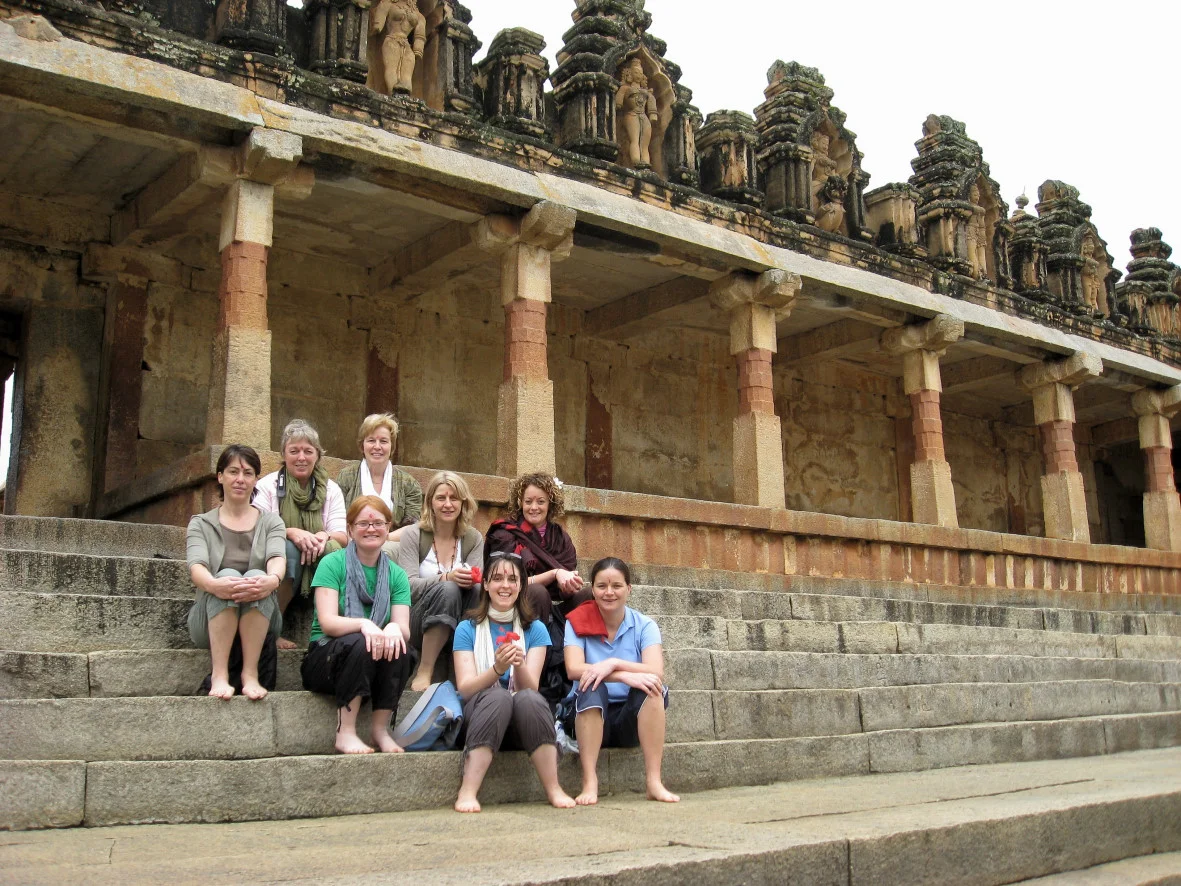
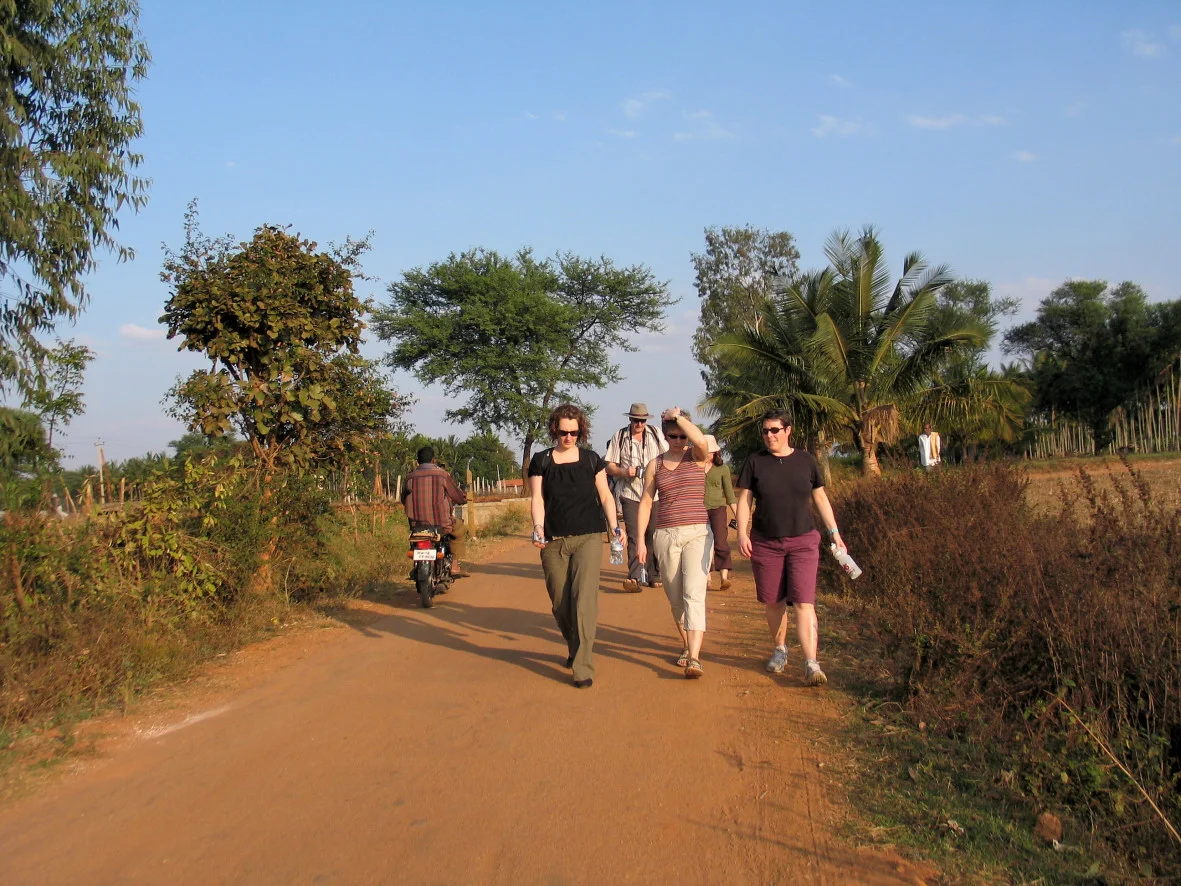
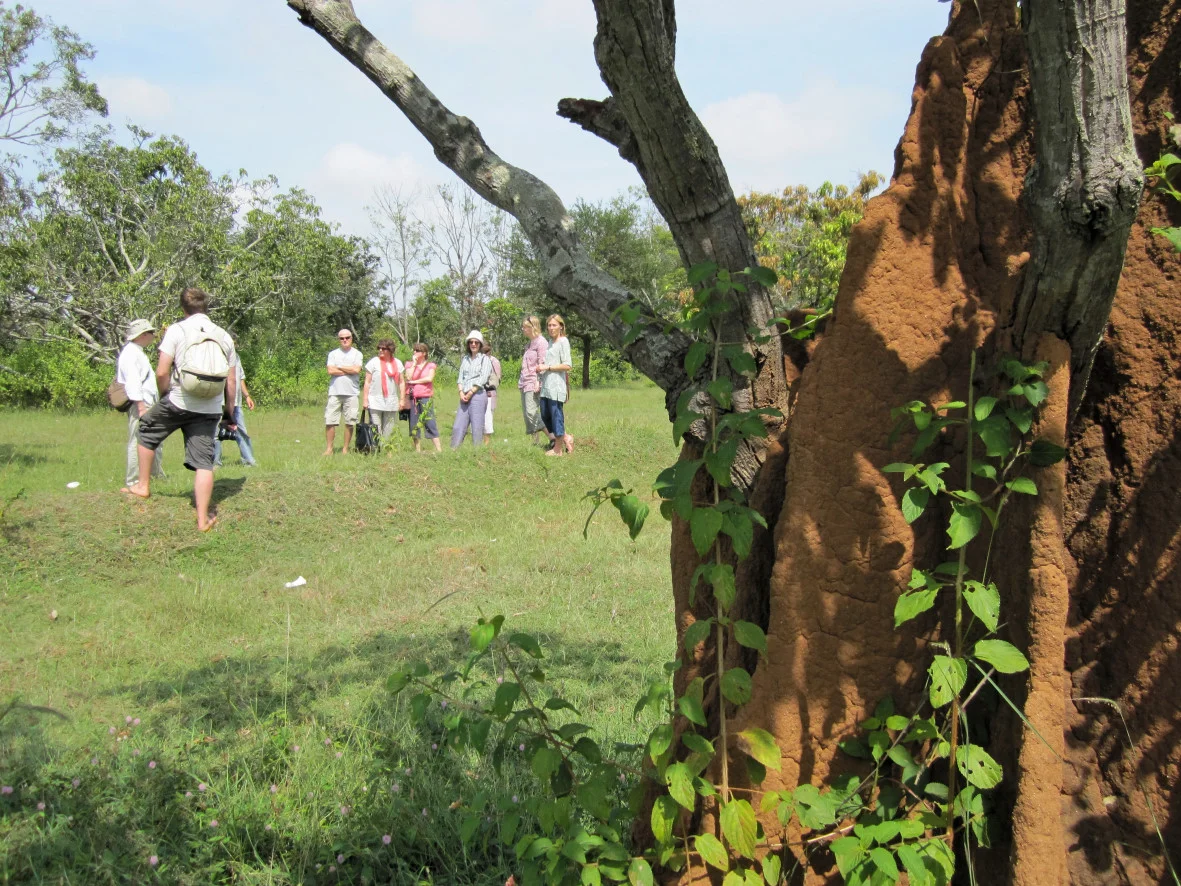
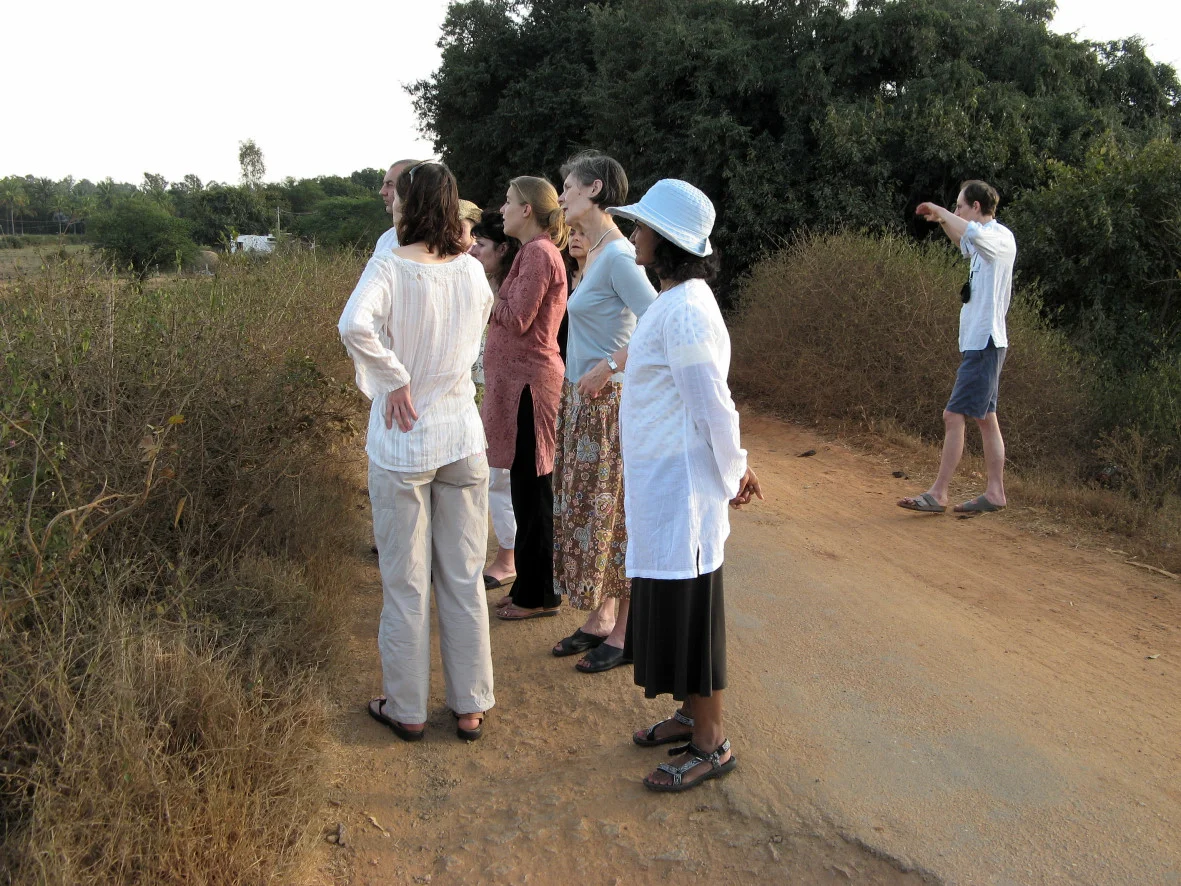
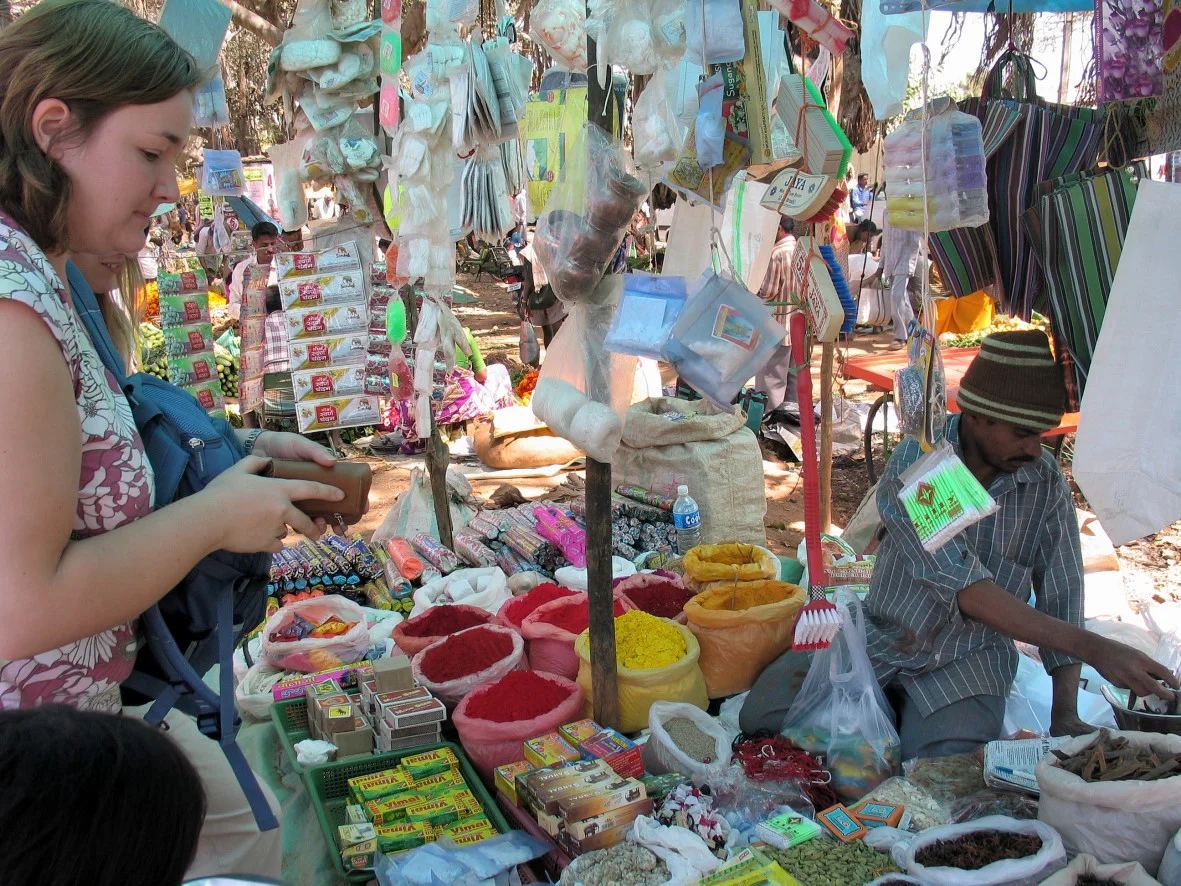
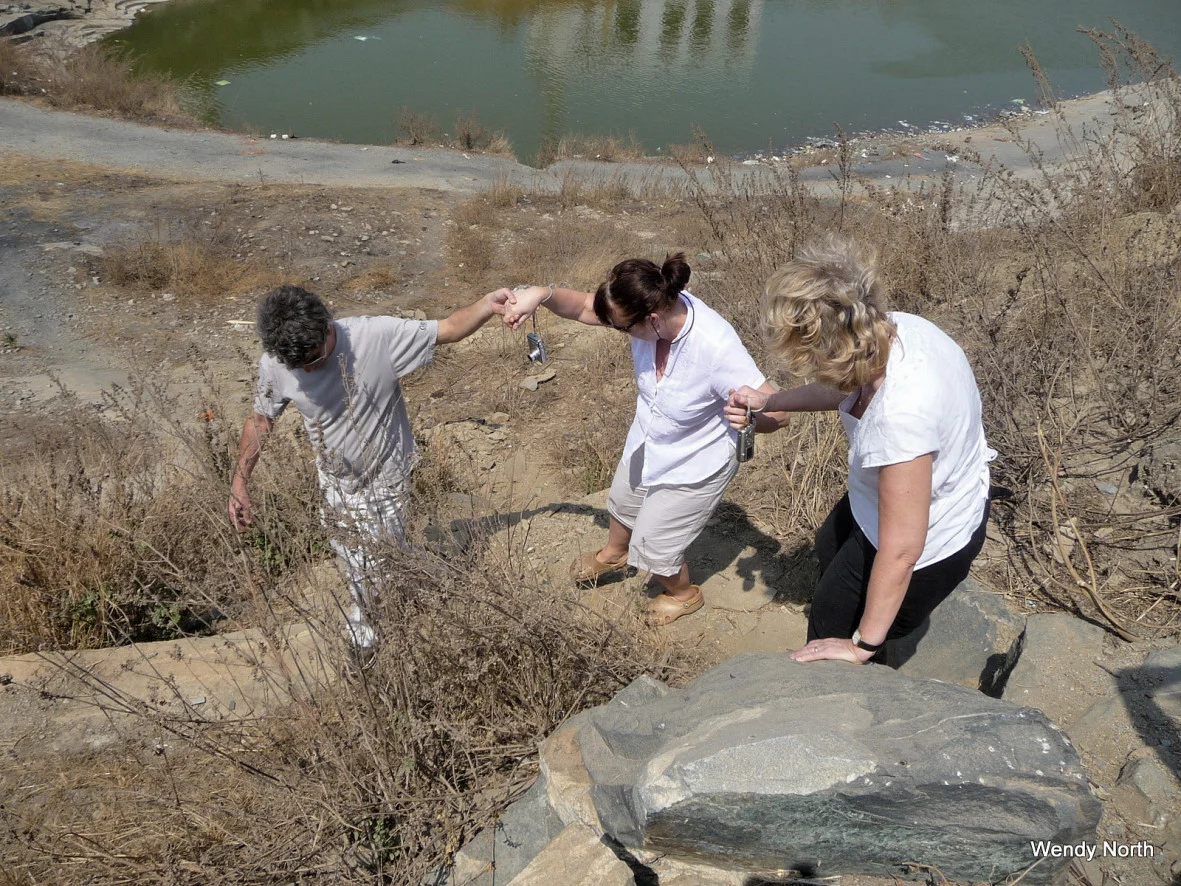
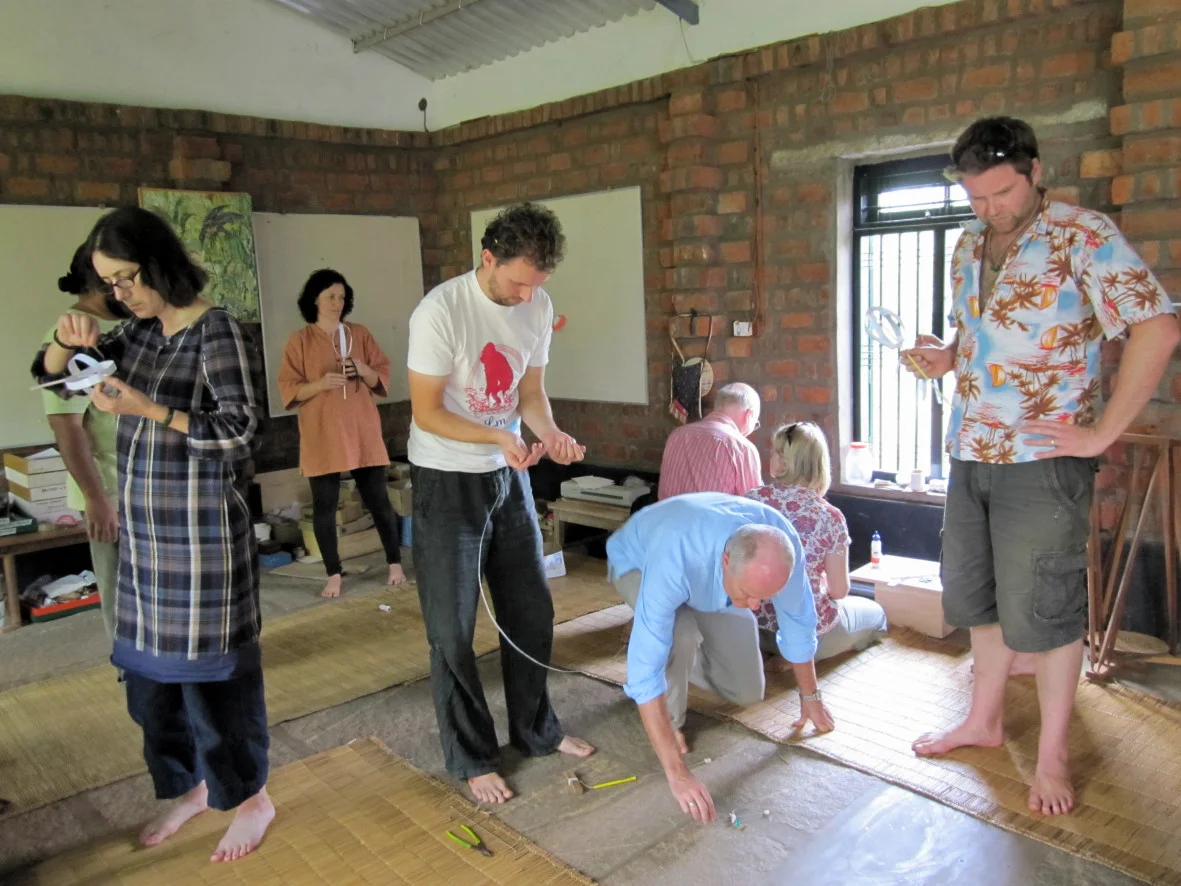
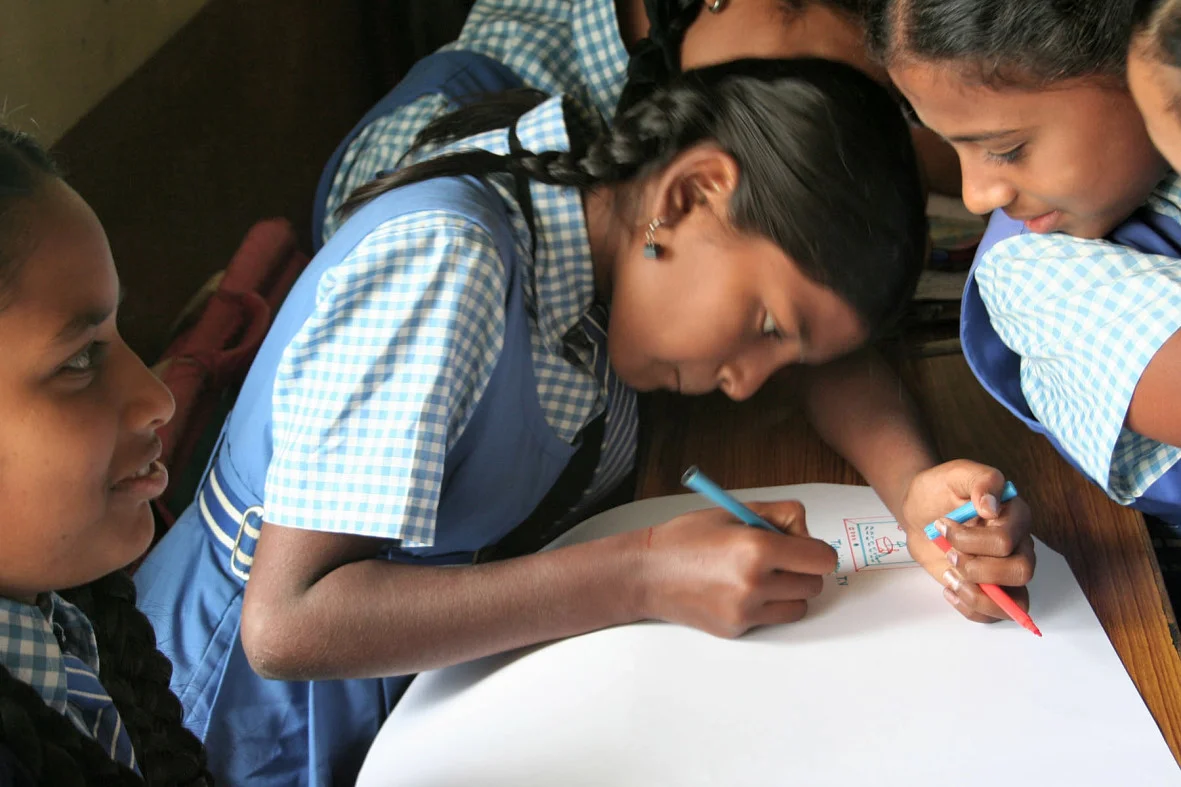
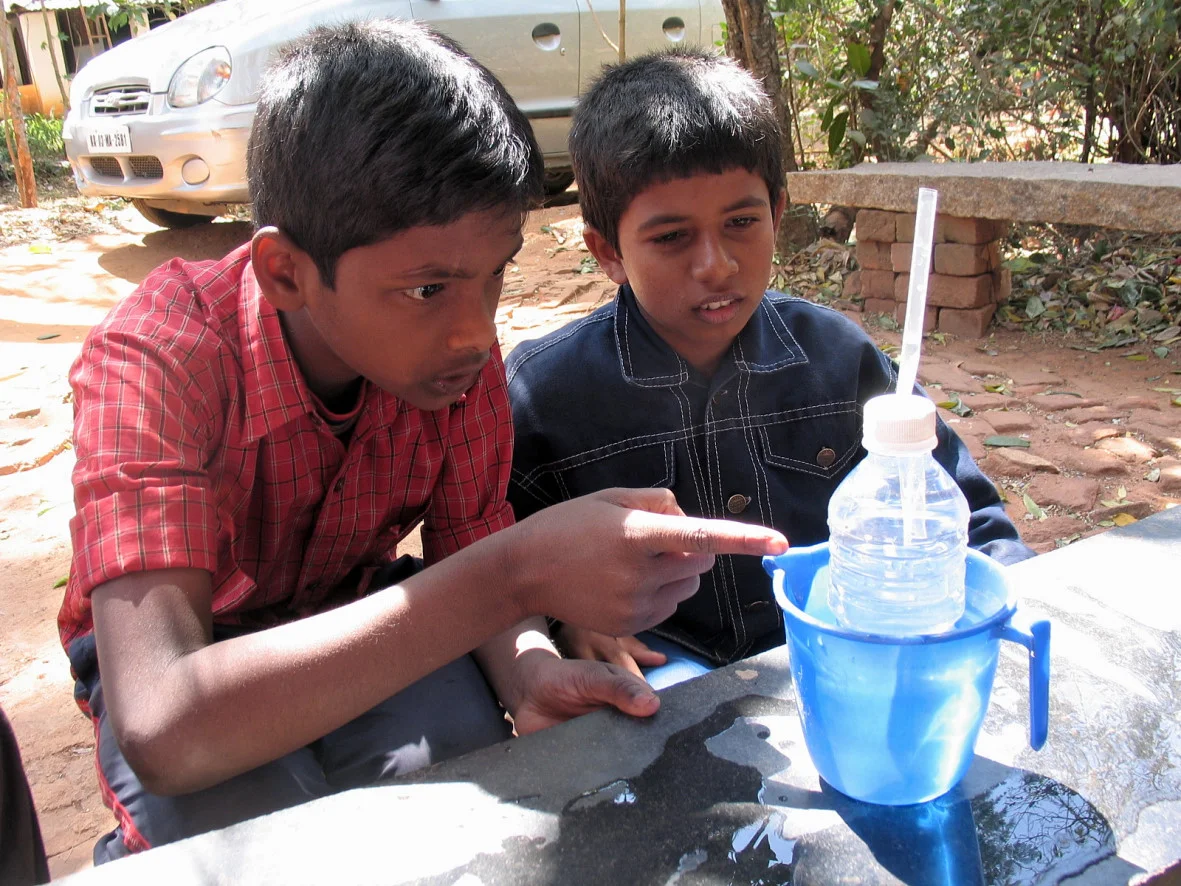
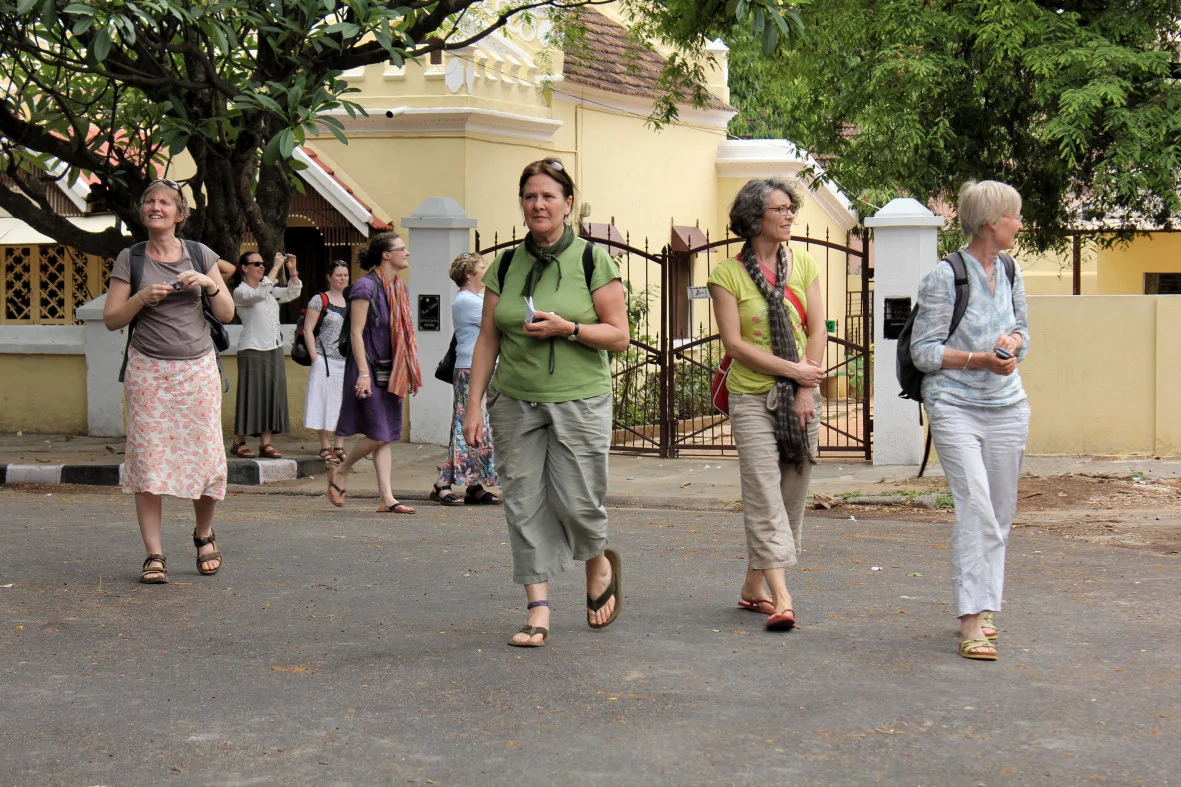
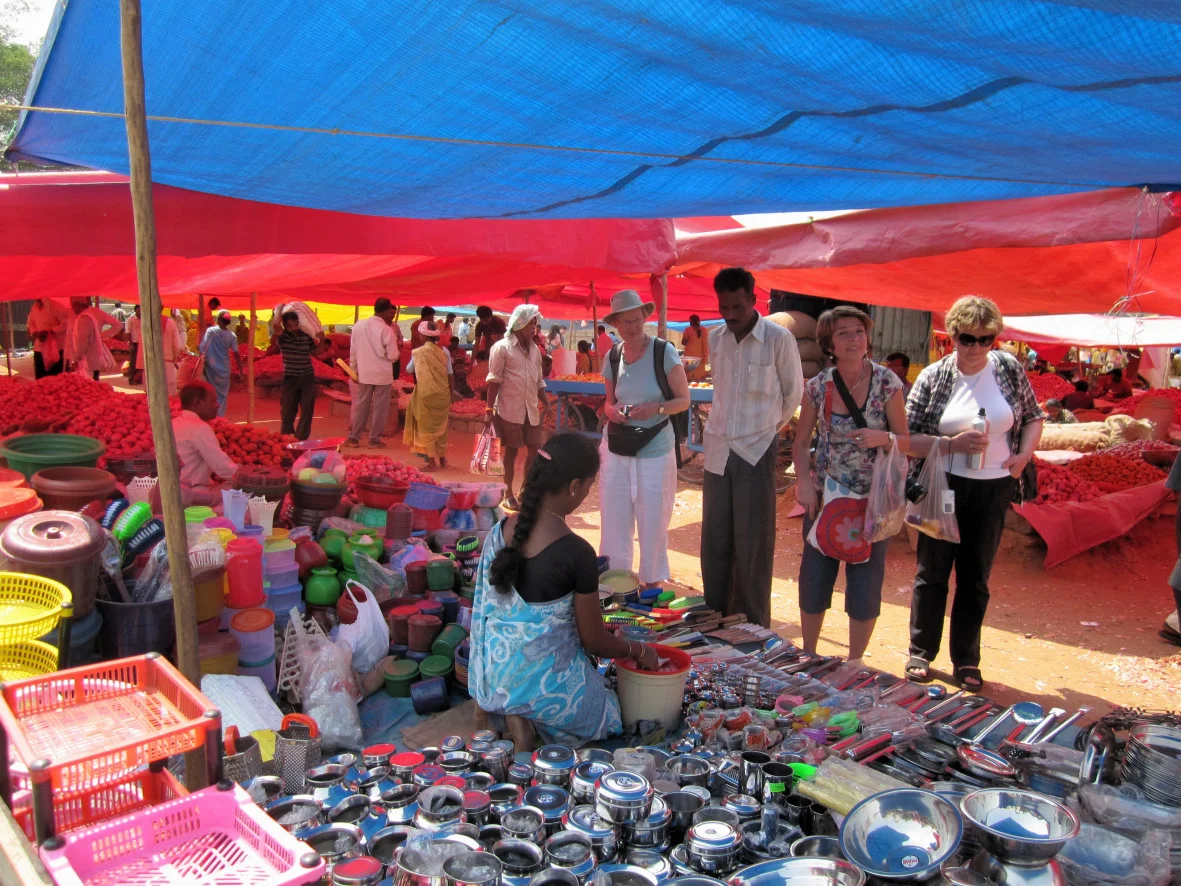

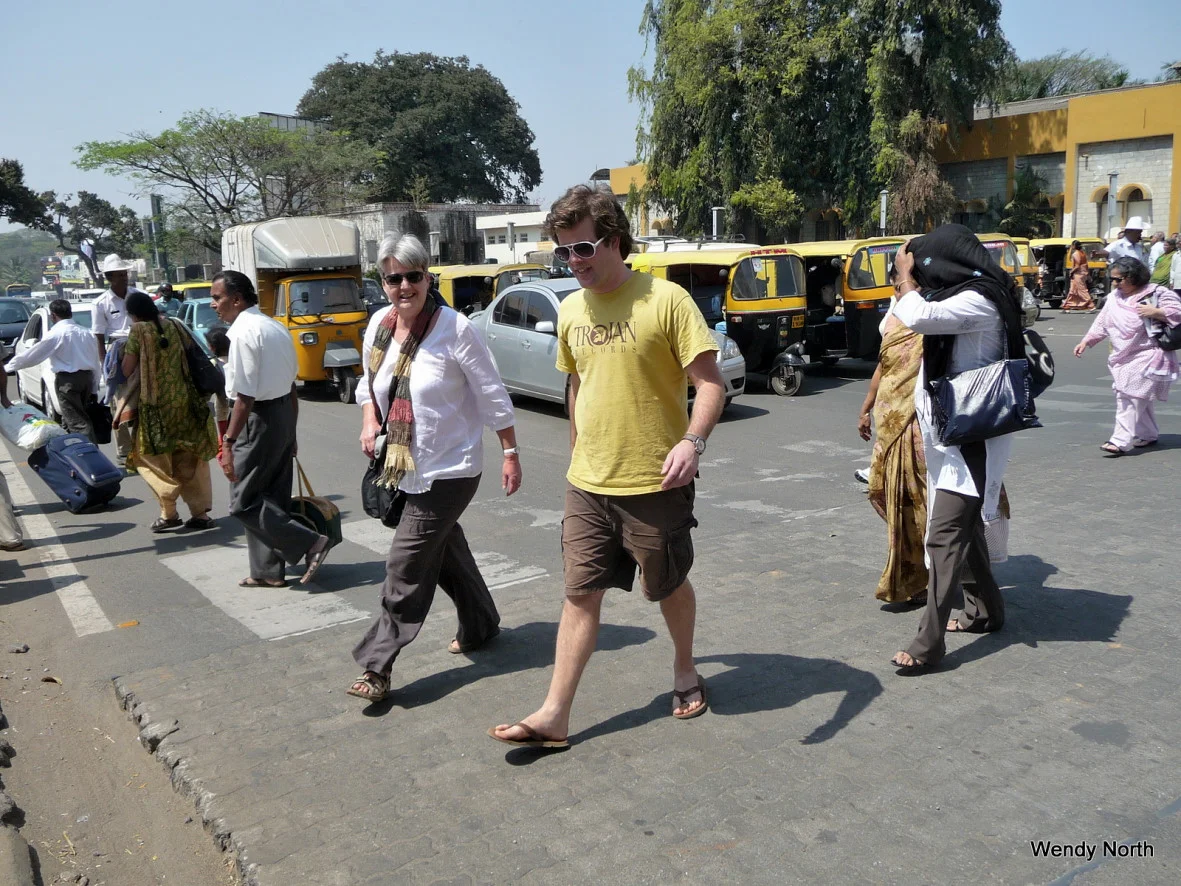
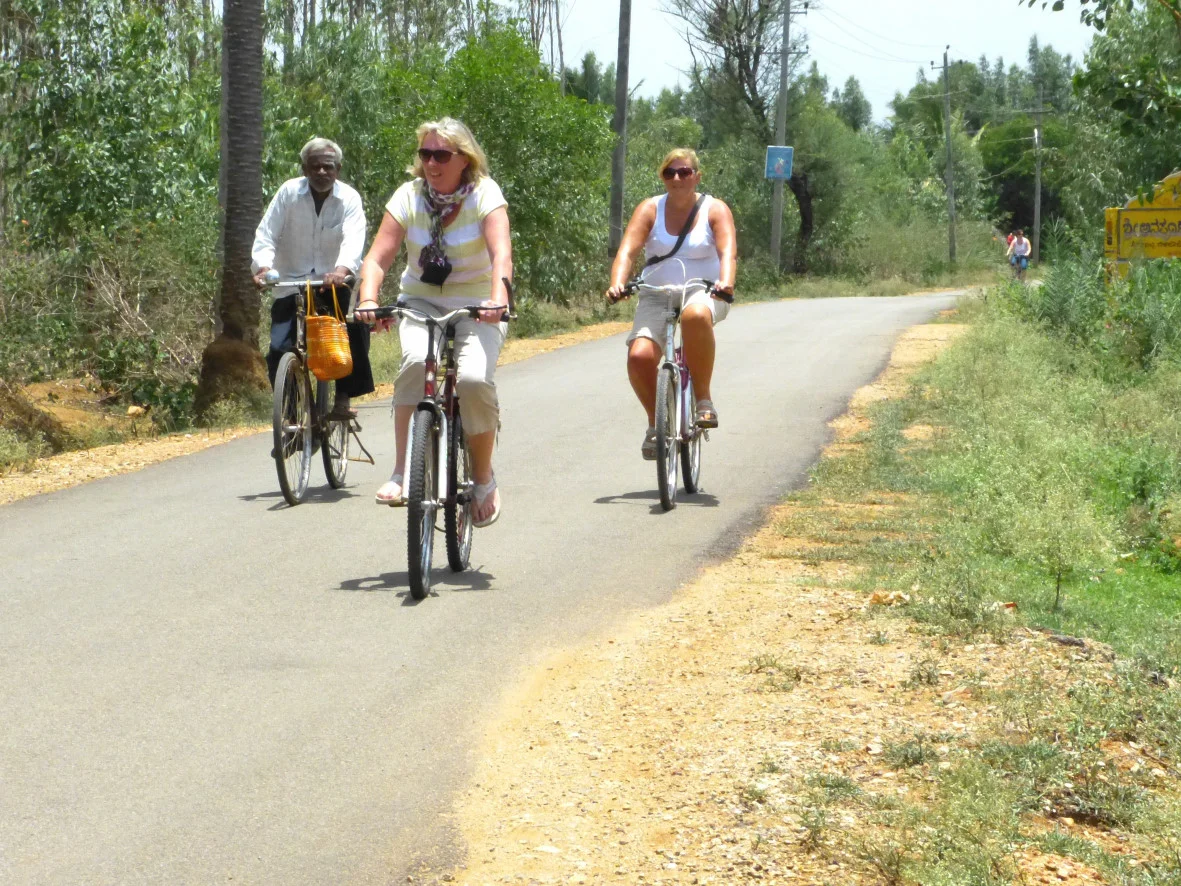





Geography in the North and South of India
The Geographical Association UK Study Tour 2019
Twenty two teachers from the UK travelled to India to be part of the Geographical Association’s India study tour which we facilitated and ran for the second time.
The tour began in Rural Karnataka where we studied the changing context and nature of our agricultural village community in relation to the emerging and rapidly developing city of Bengaluru. We went on cycle rides to farms and orchards and conducted a transect journey into the heart of the city.
We journeyed south to the forested mountains of Chikmagalur and on to Mysore where they witnessed the process of production of silk, and jaggary- the economic resources that the river Cauvery supports. There was a day for discussion and resource development when we particularly focussed on water security issues.
We then travelled to the North Indian state of Rajasthan and to Jaipur to look at the cultural and economic contrasts between the north and south of India. We travelled to Ranthambore tiger reserve and visited Dastkar to witness their sustainable livelihood projects for displaced forest communities. We then journeyed west through Bundi, visiting it’s forts and stepwells, and on to Udaipur where we met with WaterHarvest and witnessed the water projects that they support. The tour finished back in Bengaluru with a day to cook and reflect before leaving for the UK.

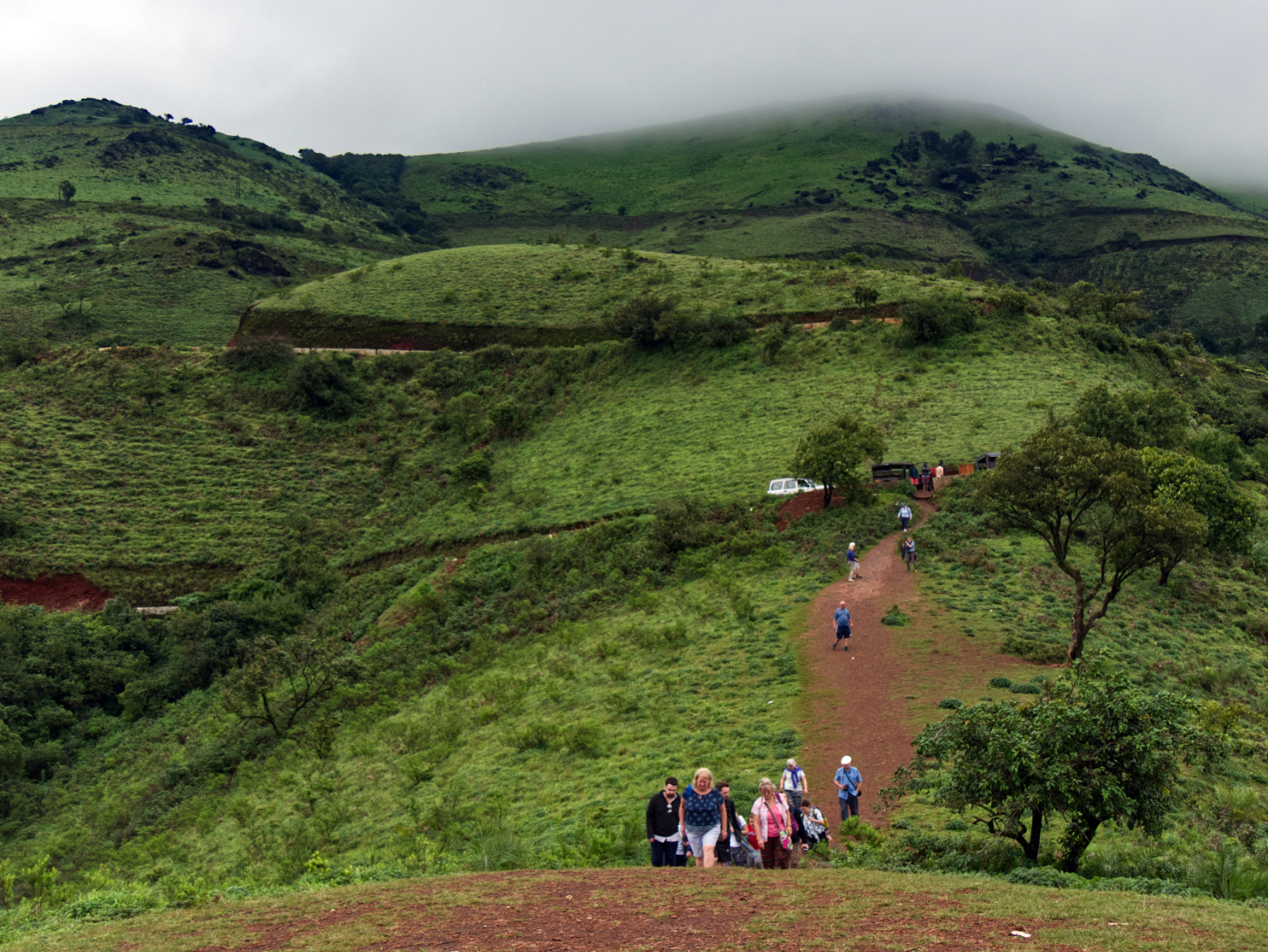


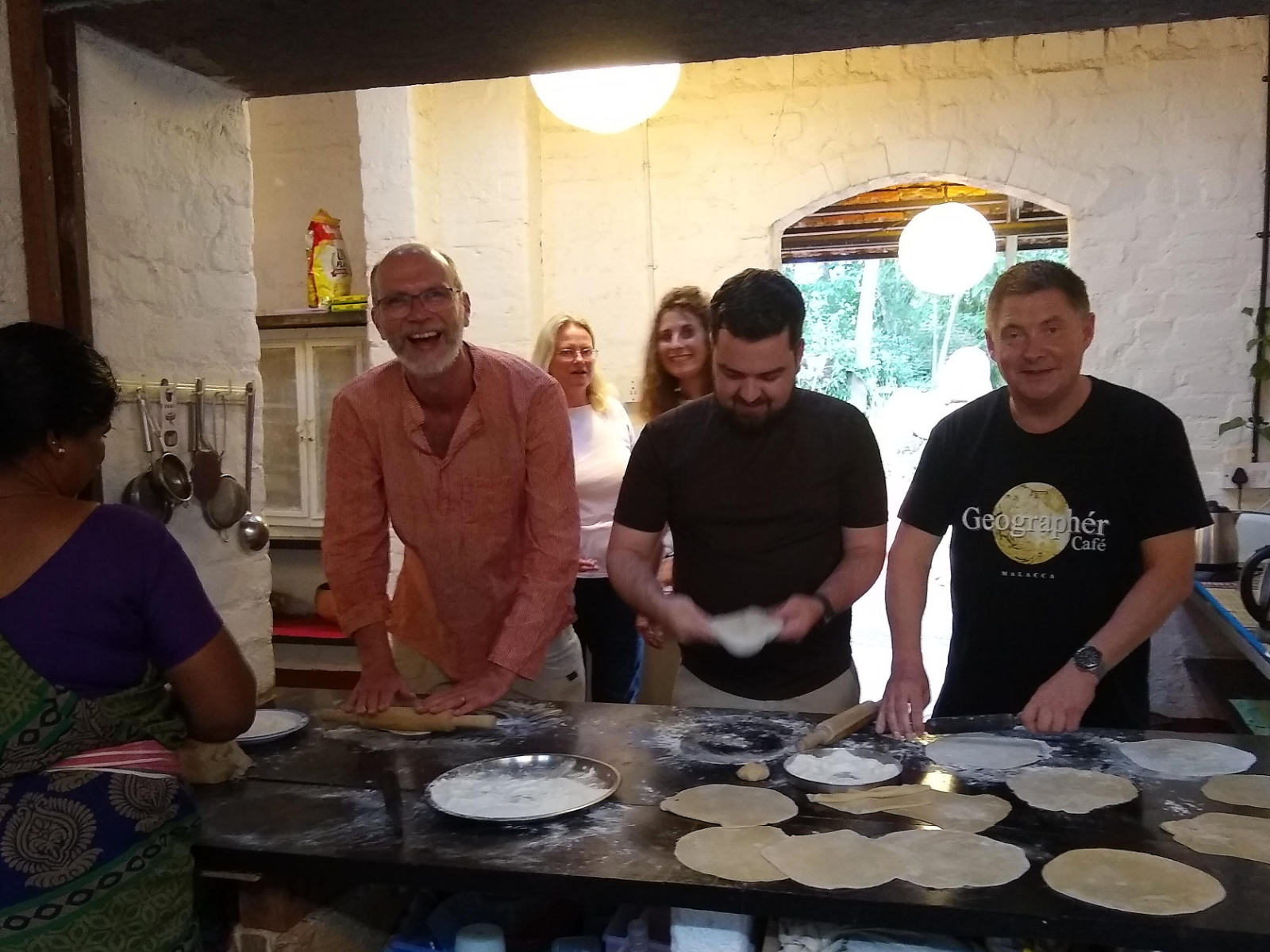








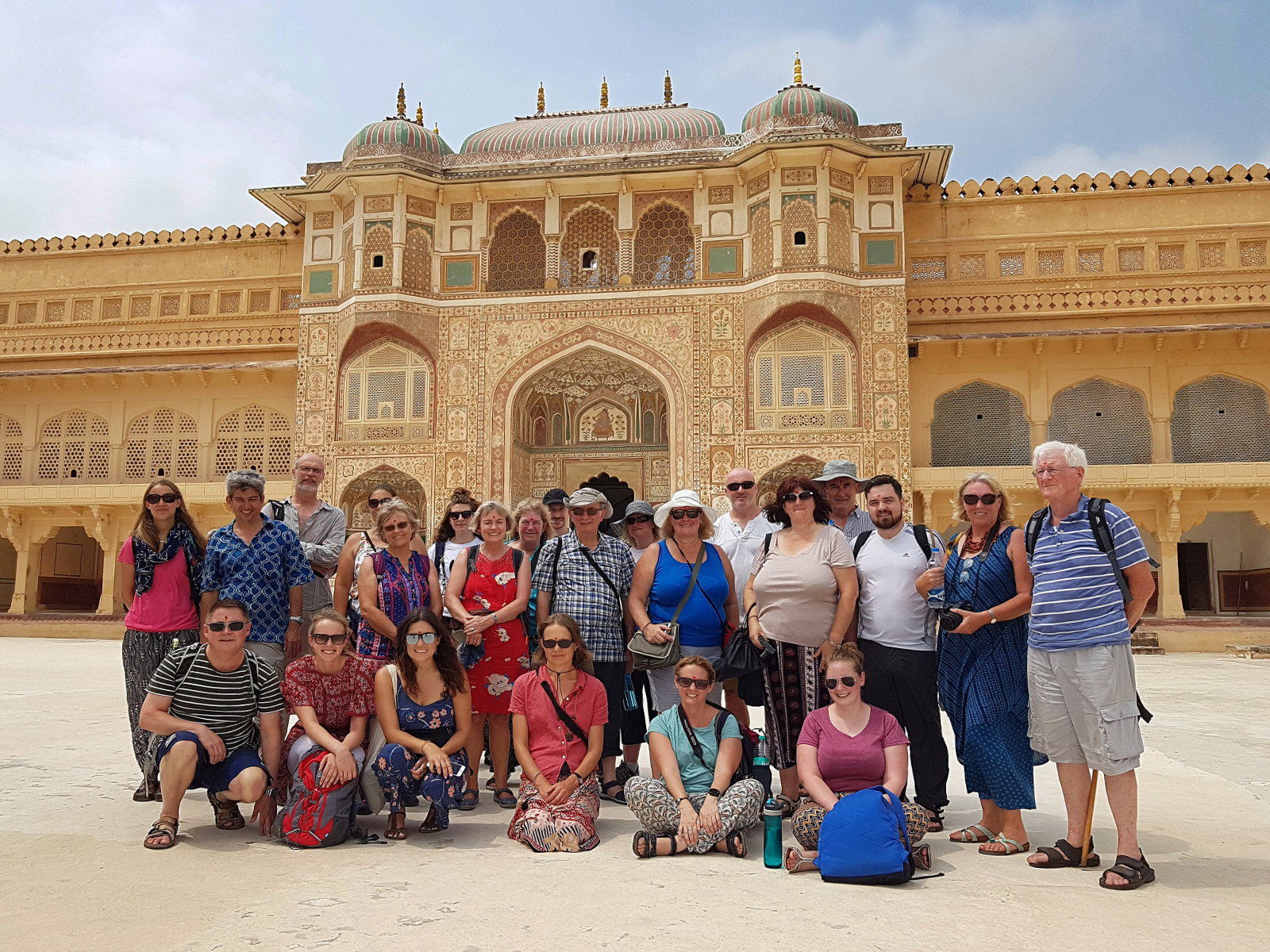



Music and Performing arts
In 2017 we initiated our first music and performing arts study visit, specifically for expressive arts teachers. The trip began with an introduction to the background of Indian classical and folk music traditions, through a masterclass with a sitar player and vocalist and a visit to Bengaluru’s newly opened music museum. We were visited by performers from particular traditions who conducted master classes in specific musical and expressive arts traditions sharing elements of their craft and skill. These masterclasses included Carnatic harmonium, flute and Tabla drumming, Hindustani vocal traditions and garba folk dance.
We were introduced to classical dance forms, visiting Nrityrgram dance school where we witnessed an Odissi master class. We visited an arts museum which introduced shadow puppetry and story telling performance traditions.
We travelled by train to Hampi, to the extraordinary ancient temple ruins of Vijayanagara, before ending the visit looking at patterning traditions of the rural part of Bangalore, with a final focus on cookery and food. The study visit ended with an outdoor evening performance involving all of the visiting artists.











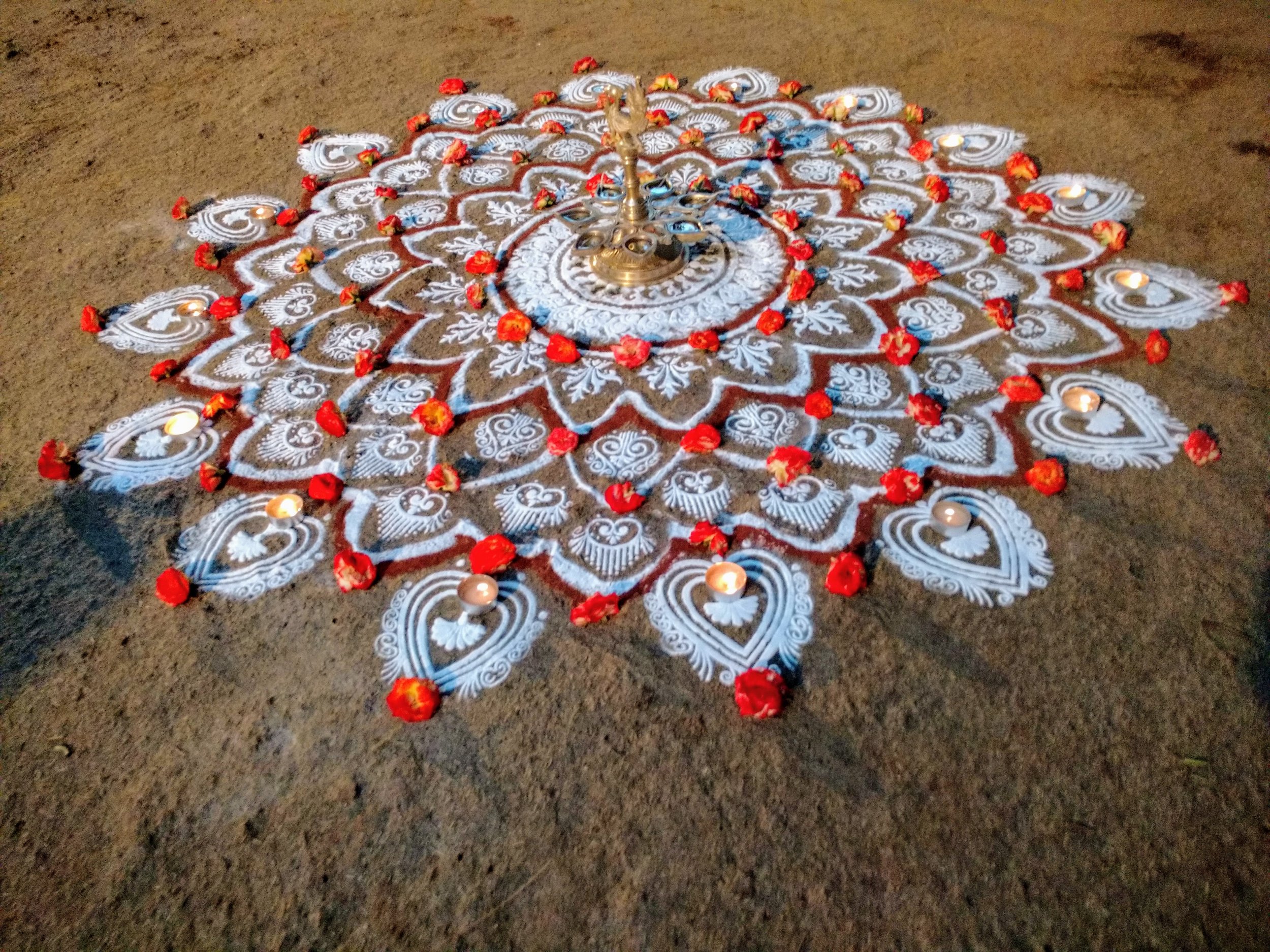




Textiles and craft
India has a very rich tradition of textiles, both cotton and silk have been produced here for centuries. Through this programme we enabled the participants to appreciate this tradition and gain an insight to the processes and techniques at each stage from the the growing of the cotton or feeding of the silk worms to the processing of the yarn and weaving techniques. We were able to see both traditional systems of pit weaving and jacquard looms and finally those controlled by computers. We visited studios which still use the traditional craft of hand printing blocks using only naturally produced dyes and visited a community of women who do intricate embroidery work inter-spaced with mirror and bead work. We have a block printing facility at Stepwells India base and encourage all our groups to make use of this facility.





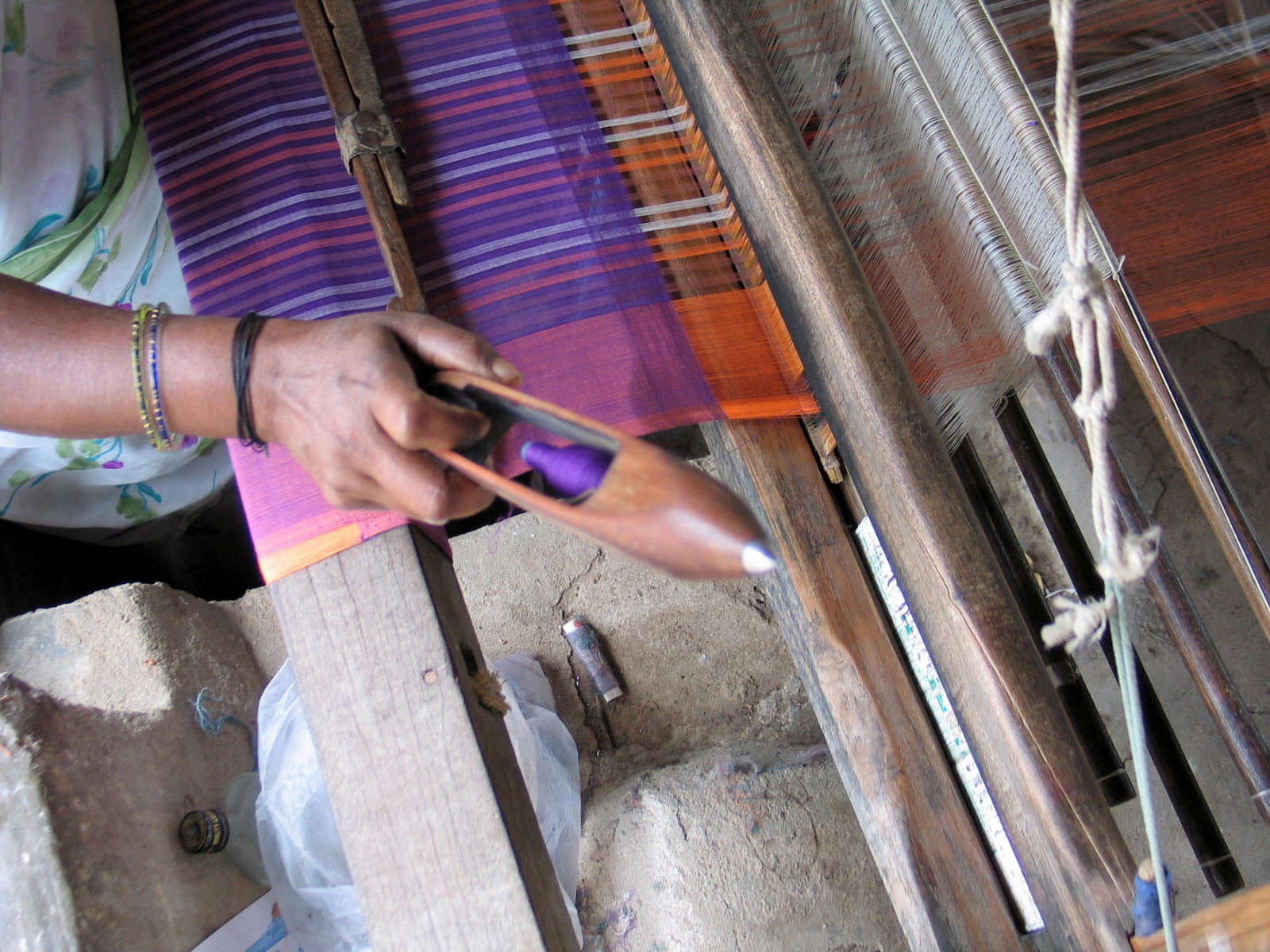

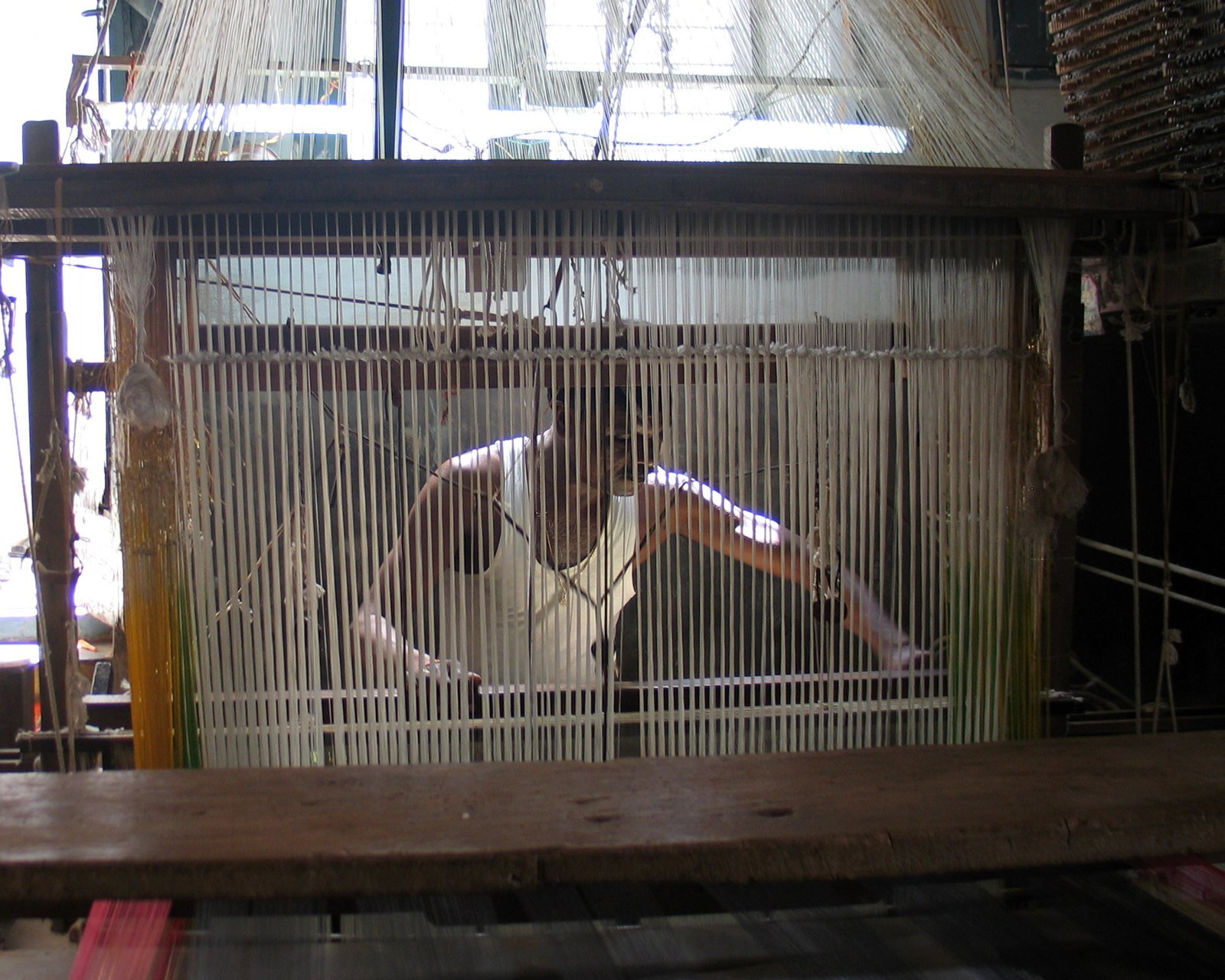









Culture and Wildlife
This has been one of the most popular trips that Stepwell has offered over the years. It offers a mix of activities and landscapes across south India enabling visitors to experience forests, mountains, cities and agricultural areas. Within these landscapes we have the option to visit locations of cultural interest including monuments, temples and places of historic interest. Each of these landscapes also offer unique opportunities in terms of wildlife and participants have been able to visit wildlife reserves, bird sanctuaries and parks. The programme has also included activities such as cookery, block printing, cycling and walks up mountains.






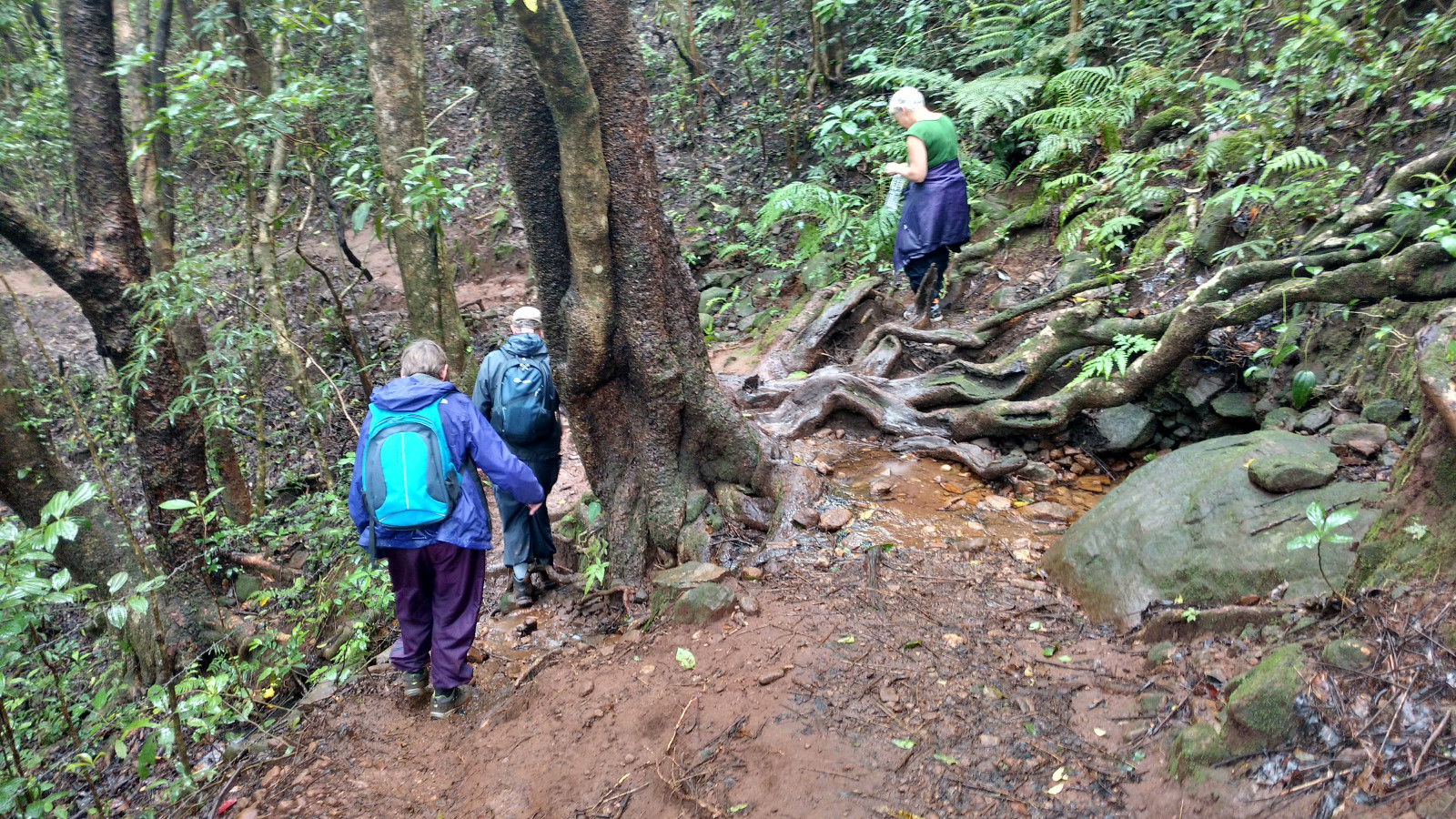







Pottery and Ceramic craft
At the our centre in India we have had a ceramic studio which has been in use for over 20 years, equipped with electric and kick wheels and a downdraft wood fired kiln we also have raku firing facilities. The pottery trip is designed to enable our participants to try out local clays form nearby lake beds and our own mixed clay bodies. There are many traditional potteries in India which vary both in styles and forms, unfortunately pottery is a dying art form in the modern Indian context and plastics and metals have replaced many of the traditional clay products. We make arrangements for master potters to interact with our guests and teach them the traditional way of throwing pots and making household artefacts.











Creativity and Wellbeing
This project focussed on the relationship between art and wellbeing, including activities which explored these themes from the context of India, and engaged in activities which developed the themes personally. The programme began at our centre in North Bangalore, working with teachers from local schools on a two day collaborative workshop which allowed teachers from the UK and India to share ideas, work together on activities and learn from each other.
We visited artists and craftspeople in the Bengaluru locality, learning the skills and traditions of Block printing, music, dance and textiles. The participants then went on a journey to the south of Karnataka to the forests of the nilgiri biosphere, visiting Jain and Hindu pilgrimage sites, and witnessing the diversity of religious traditions that south India has to offer.











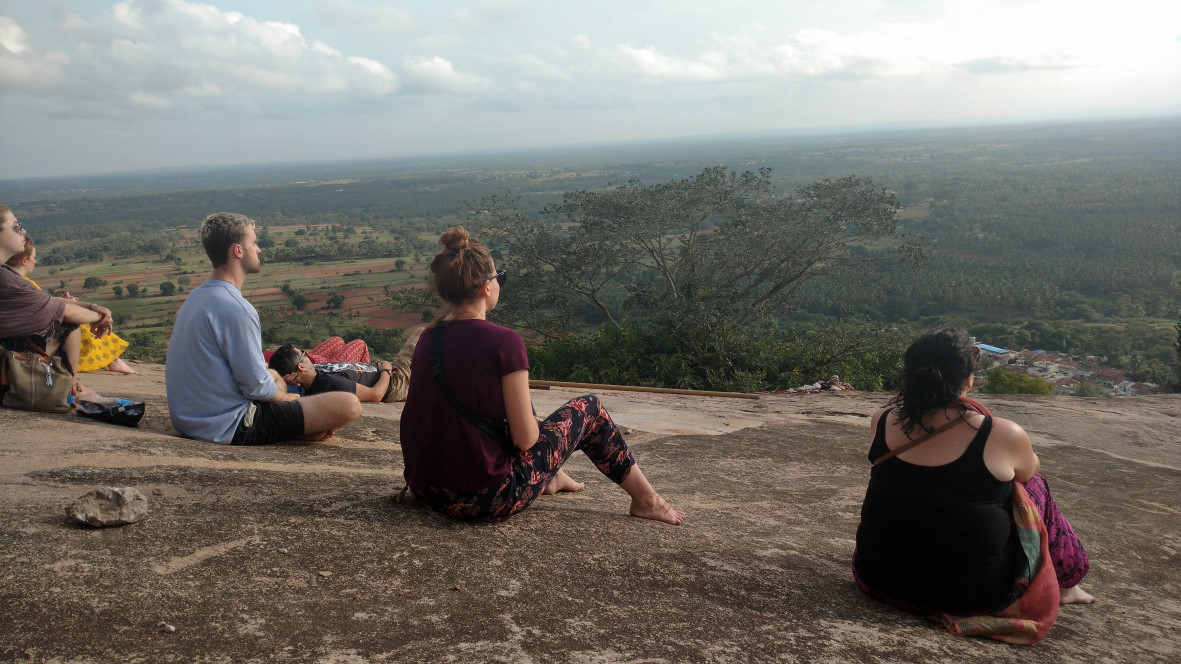







“I was recently lucky enough to take part in a two week journey in South India exploring the wildlife, birdlife and culture of Karnataka and Kerala. Our group of eight people, whom I had only met once before at a pre-visit meeting, were collected from Bengaluru Airport and driven to ‘The Land’, our base for the first two days, North of Bangalore. The Land is a beautiful small centre in a wooded plot on the edge of a village with studios and meeting spaces. It is run by an educational organisation called Stepwell led by Imogen and Kiran Sahi who divide their time working on projects and visits in India and the UK. The weather was lovely, my room very comfortable and the home-cooked food was wonderful”




